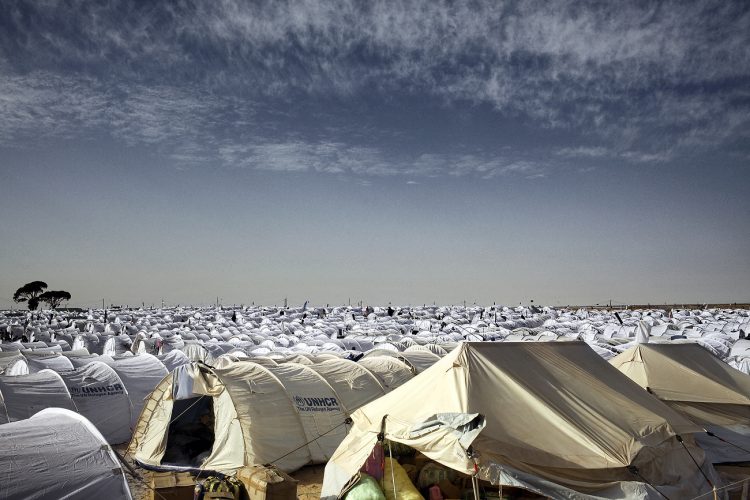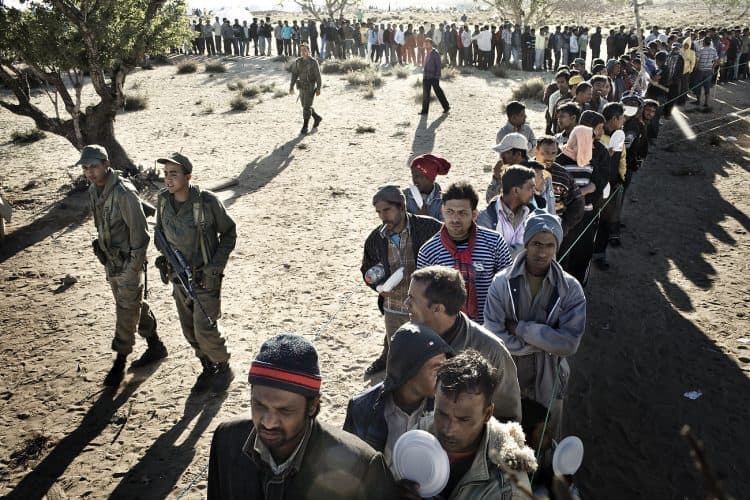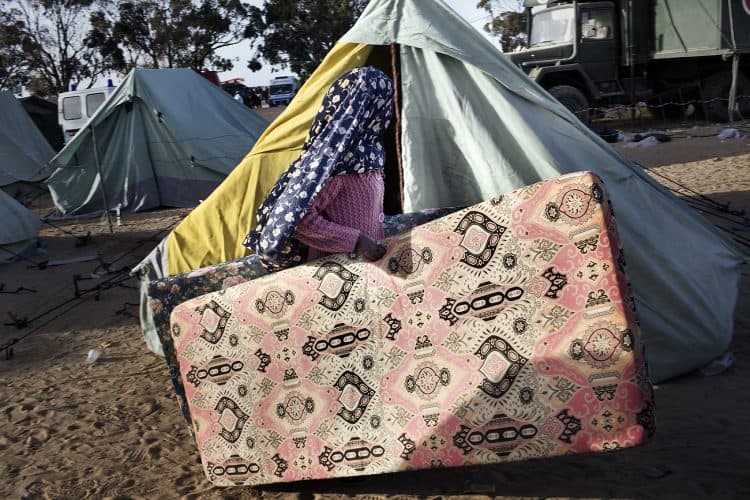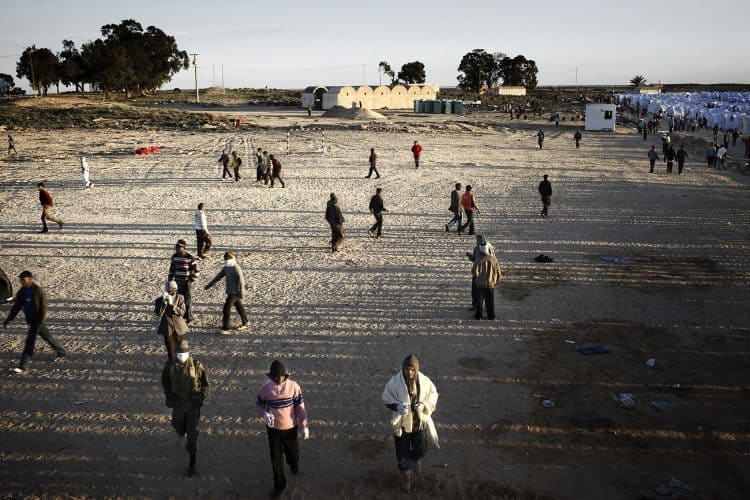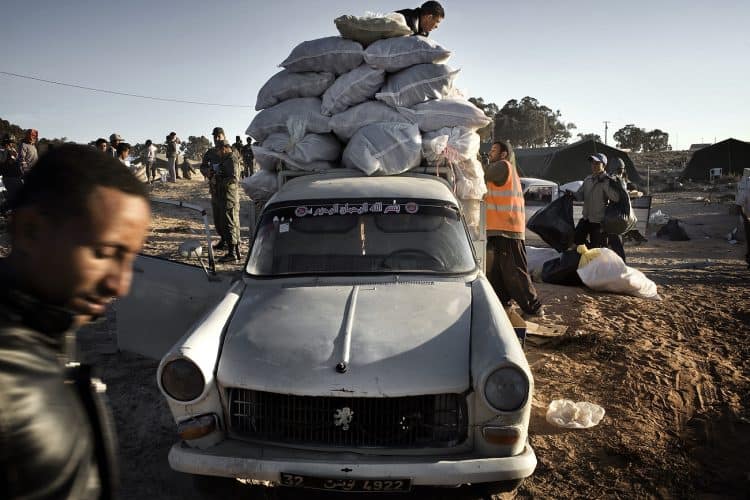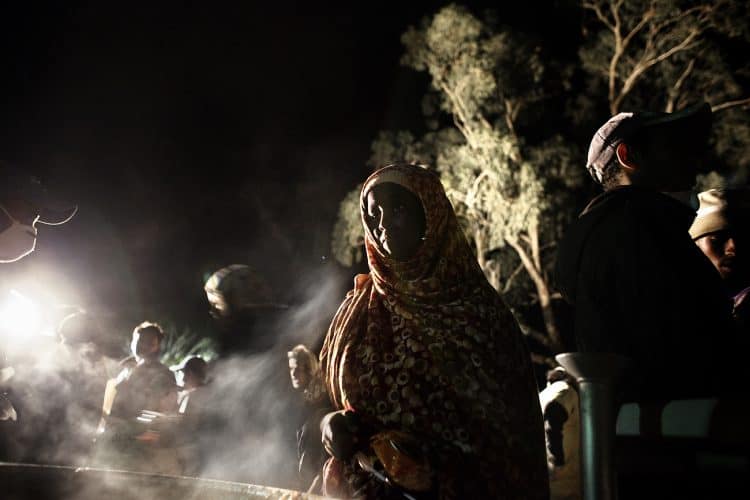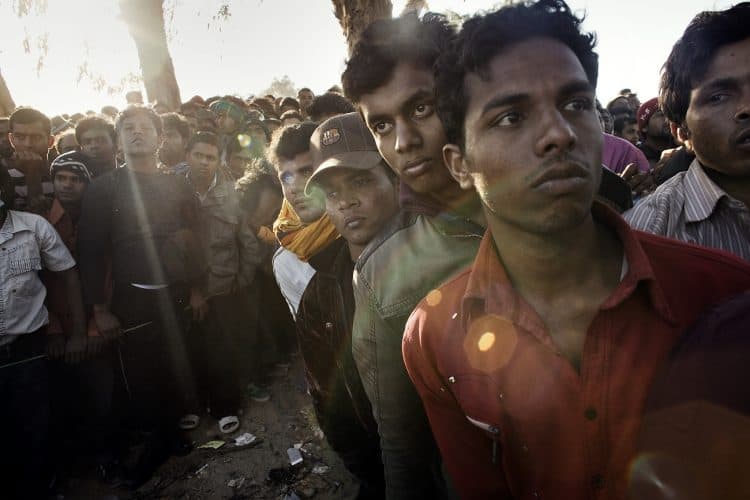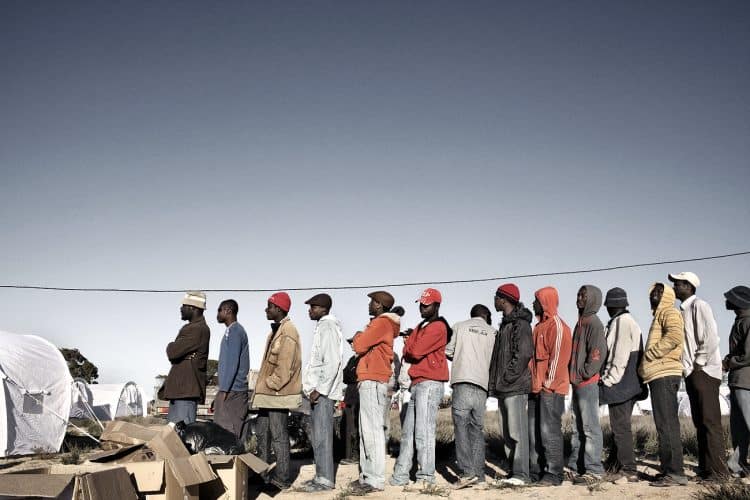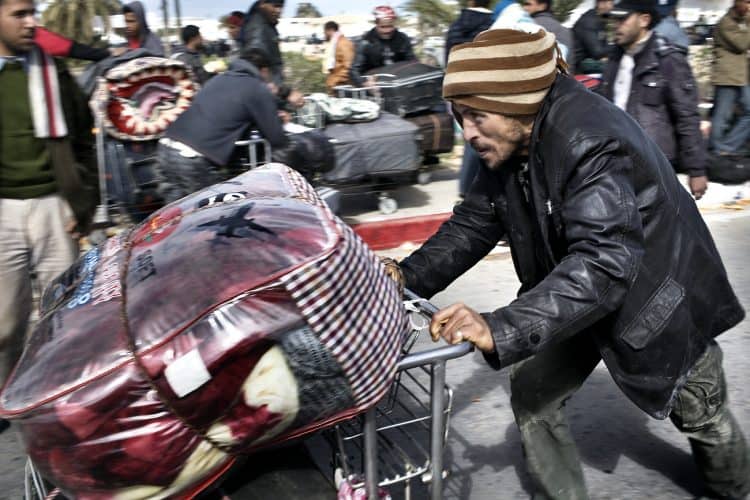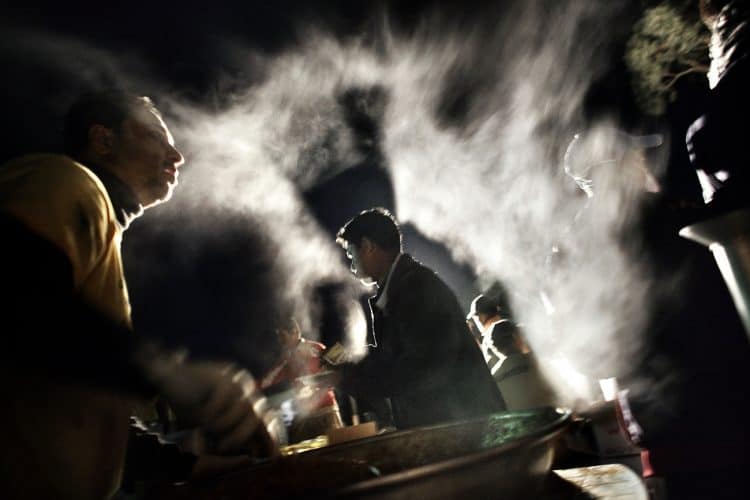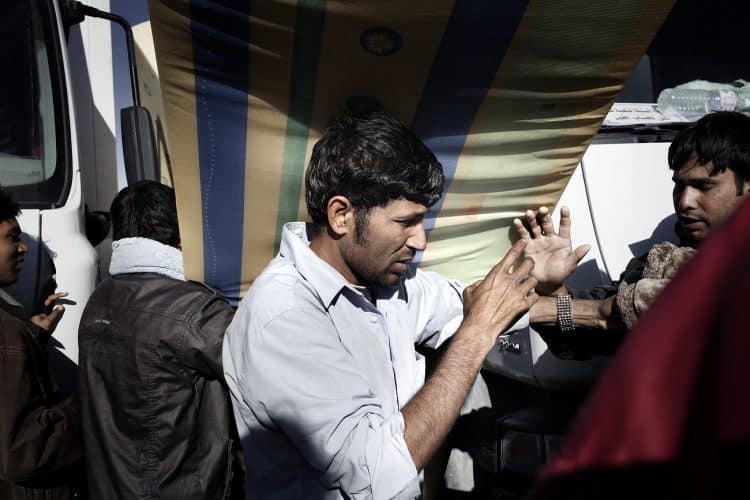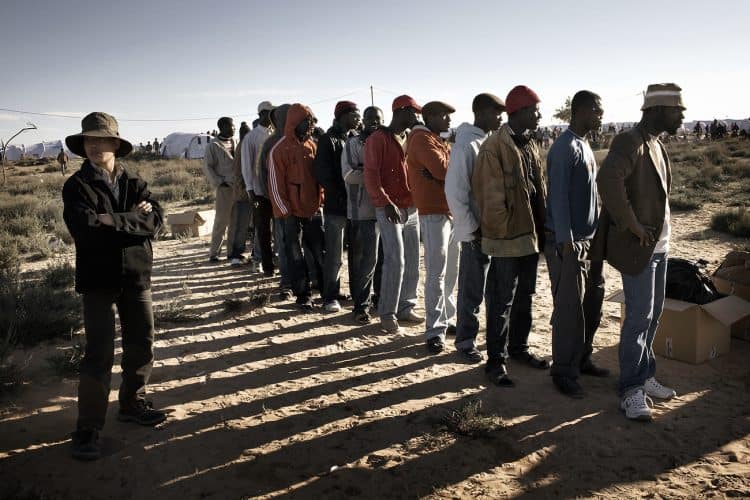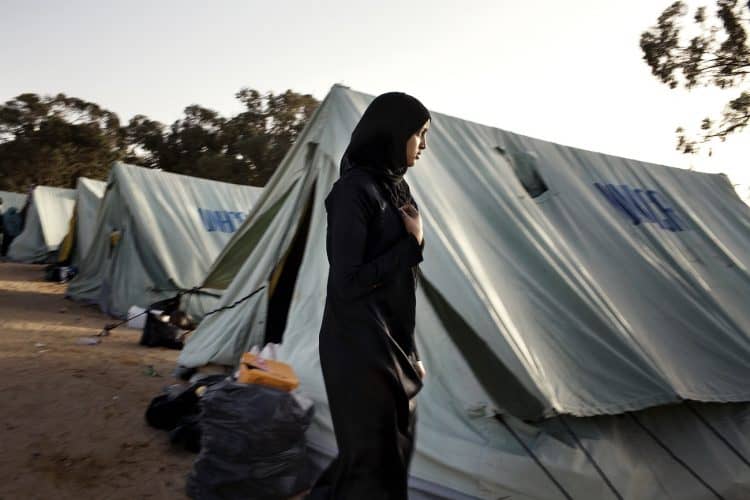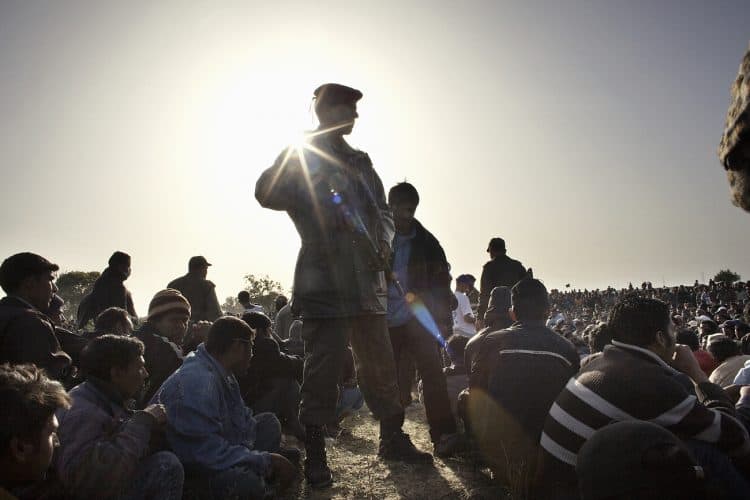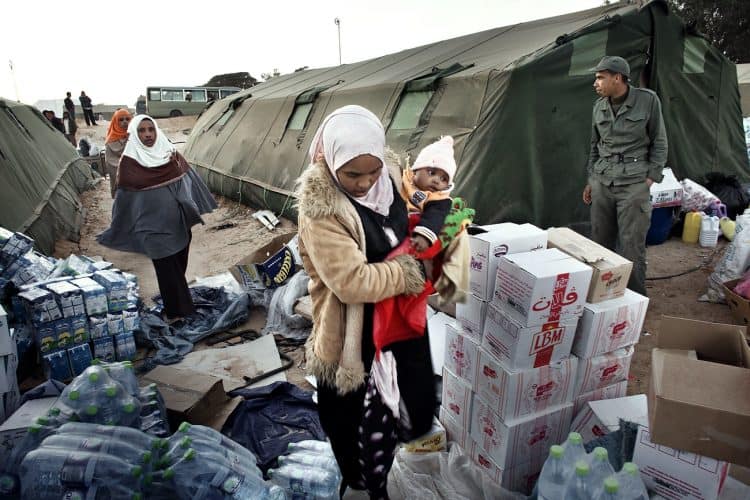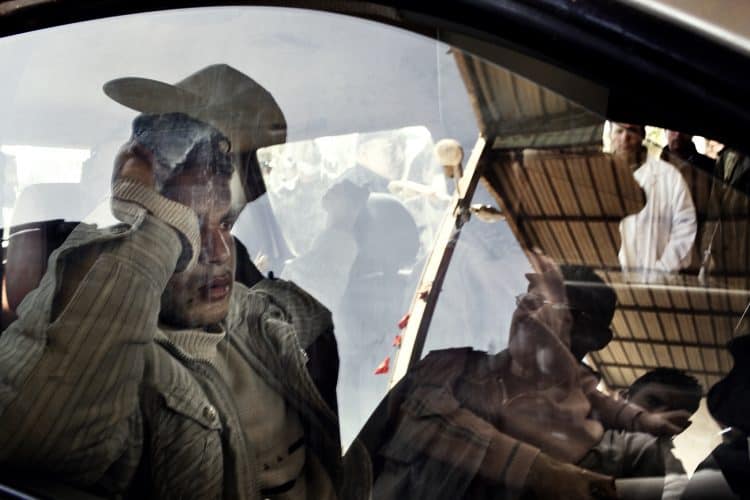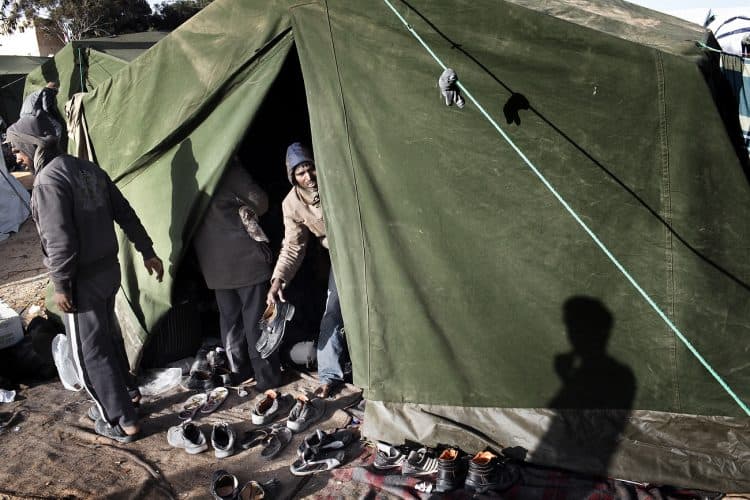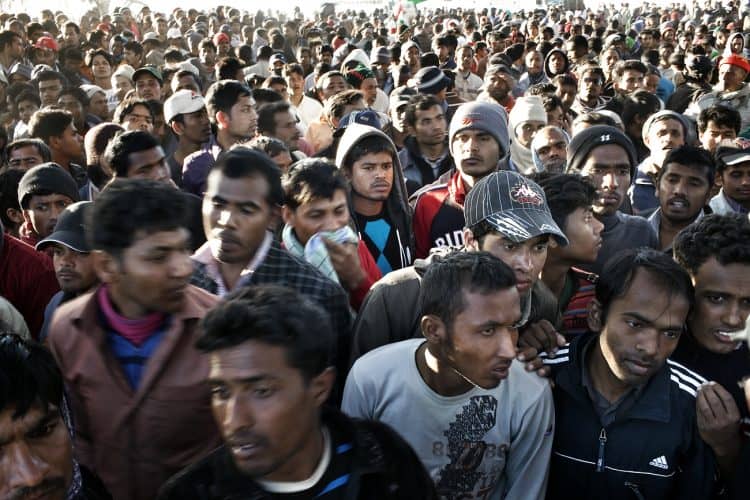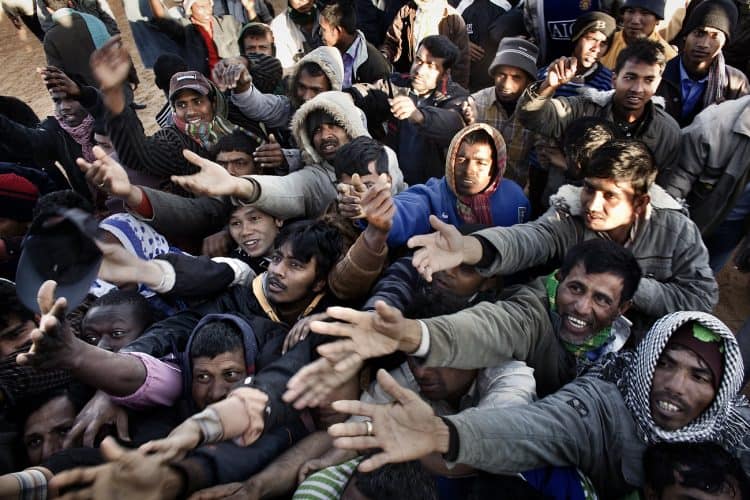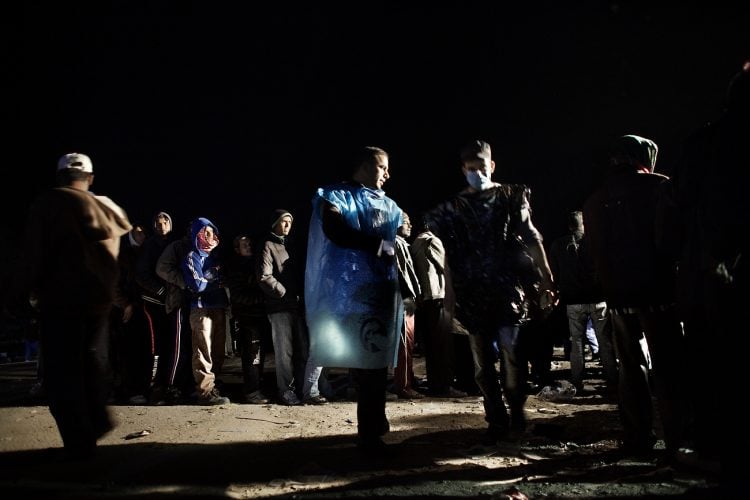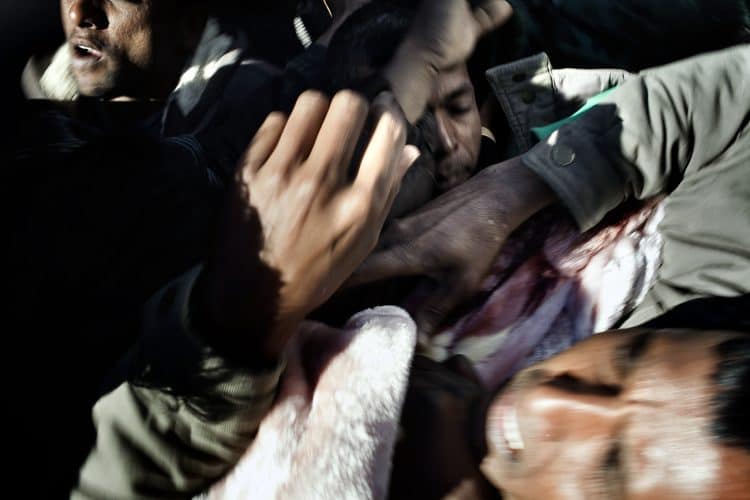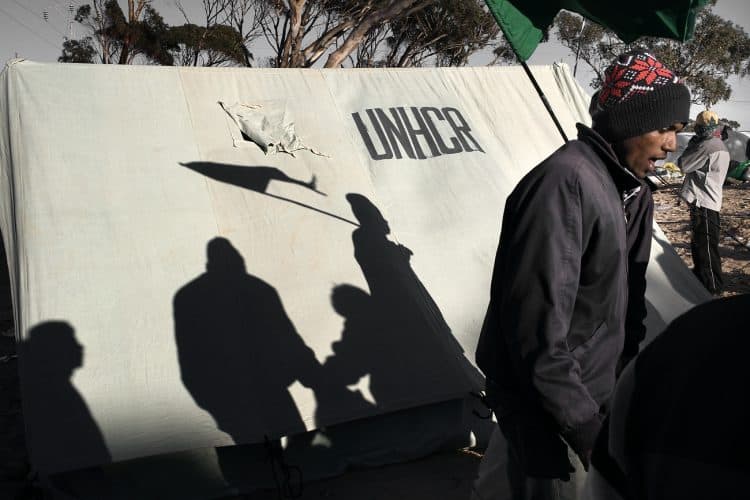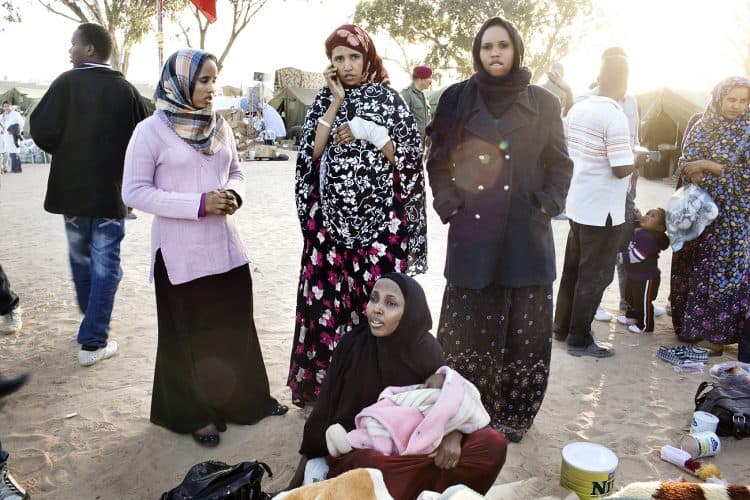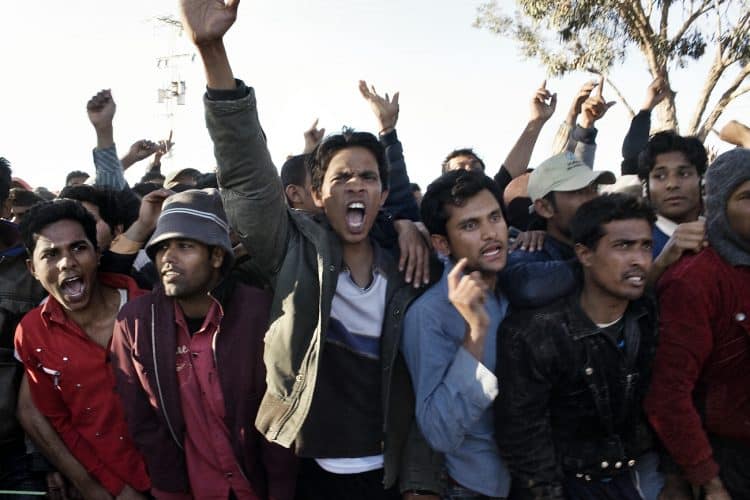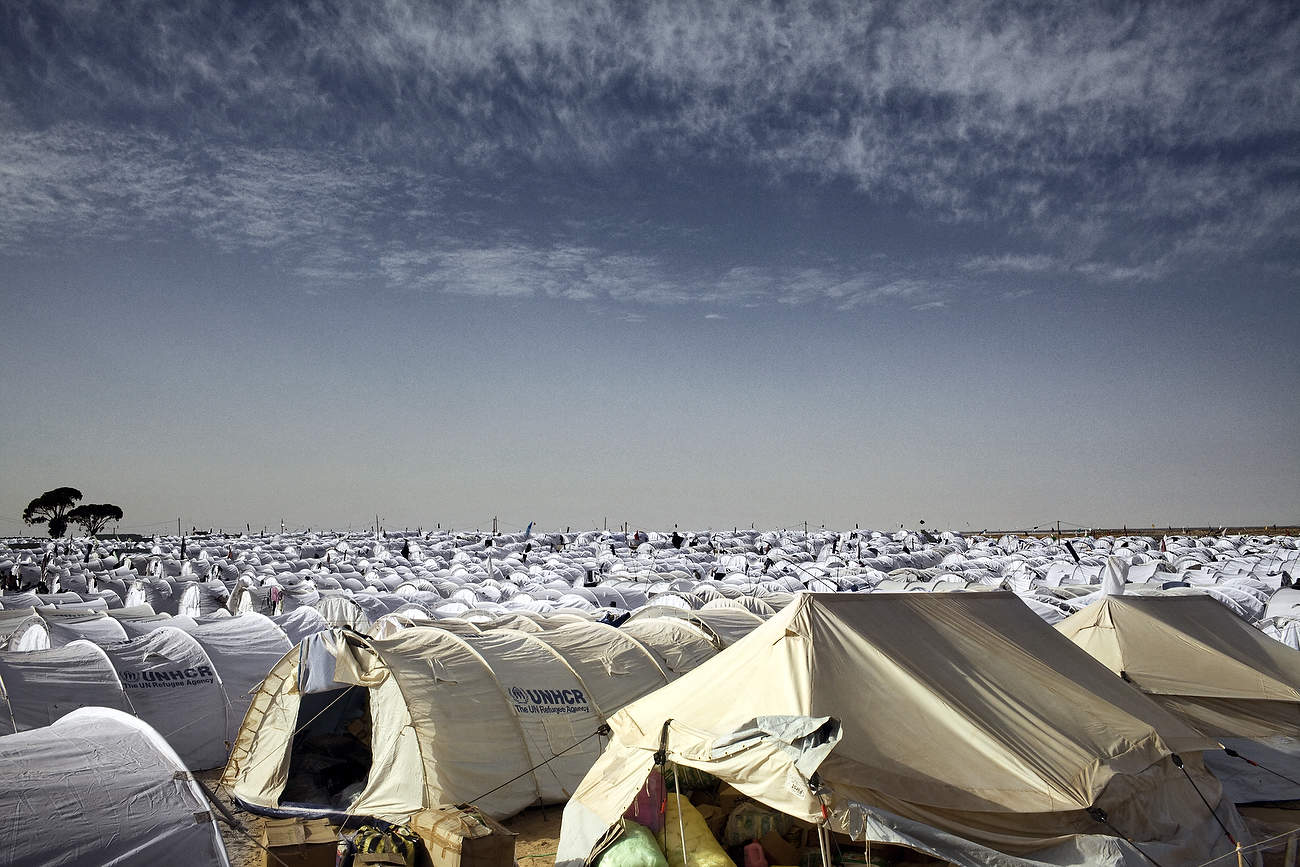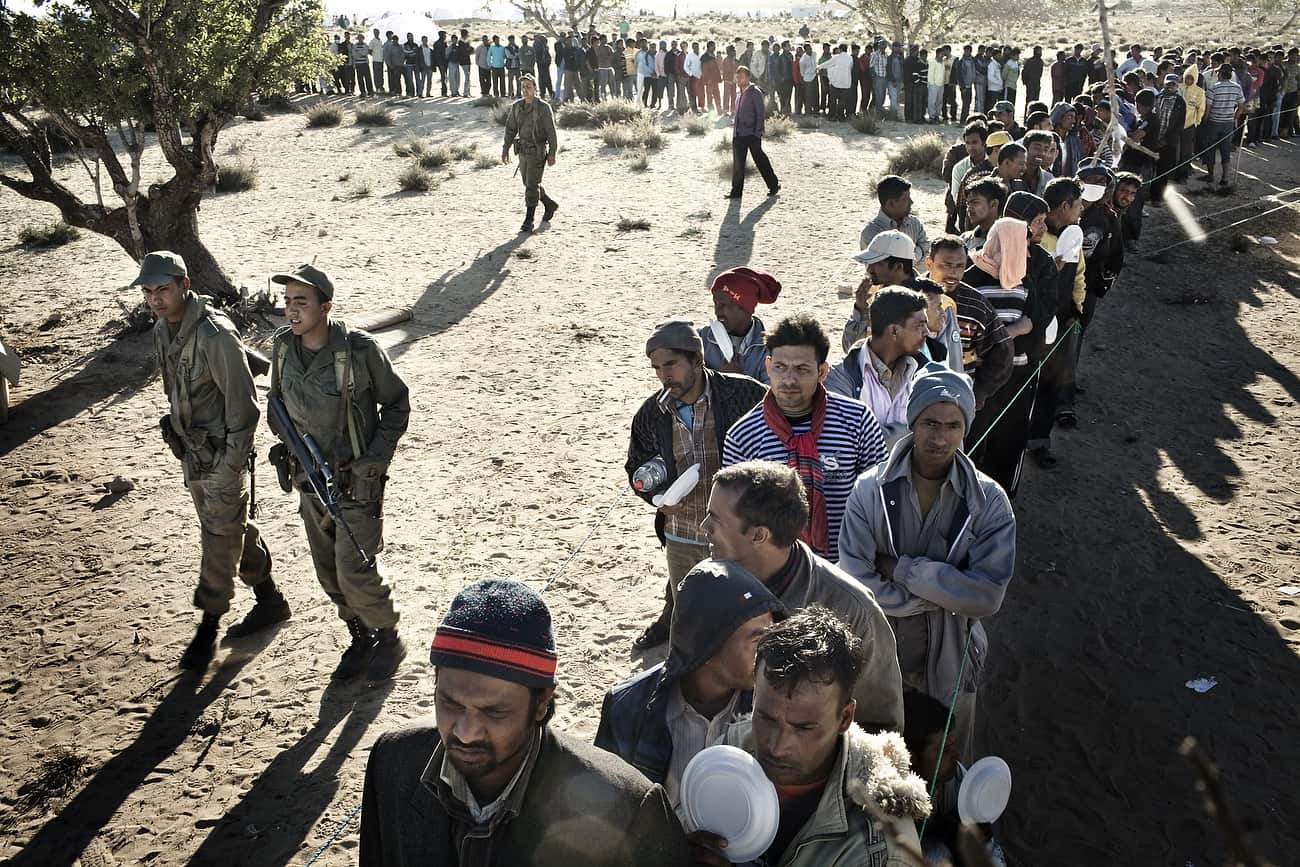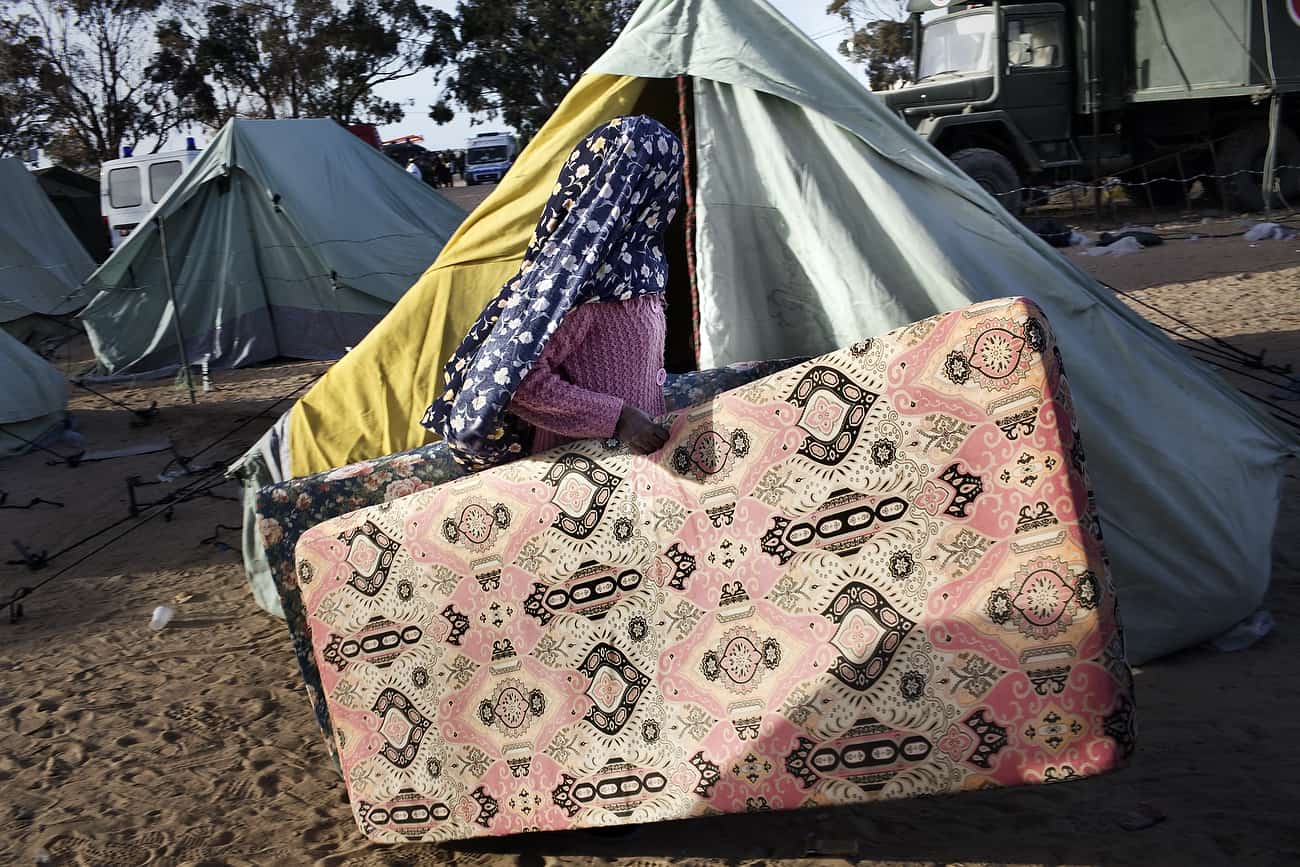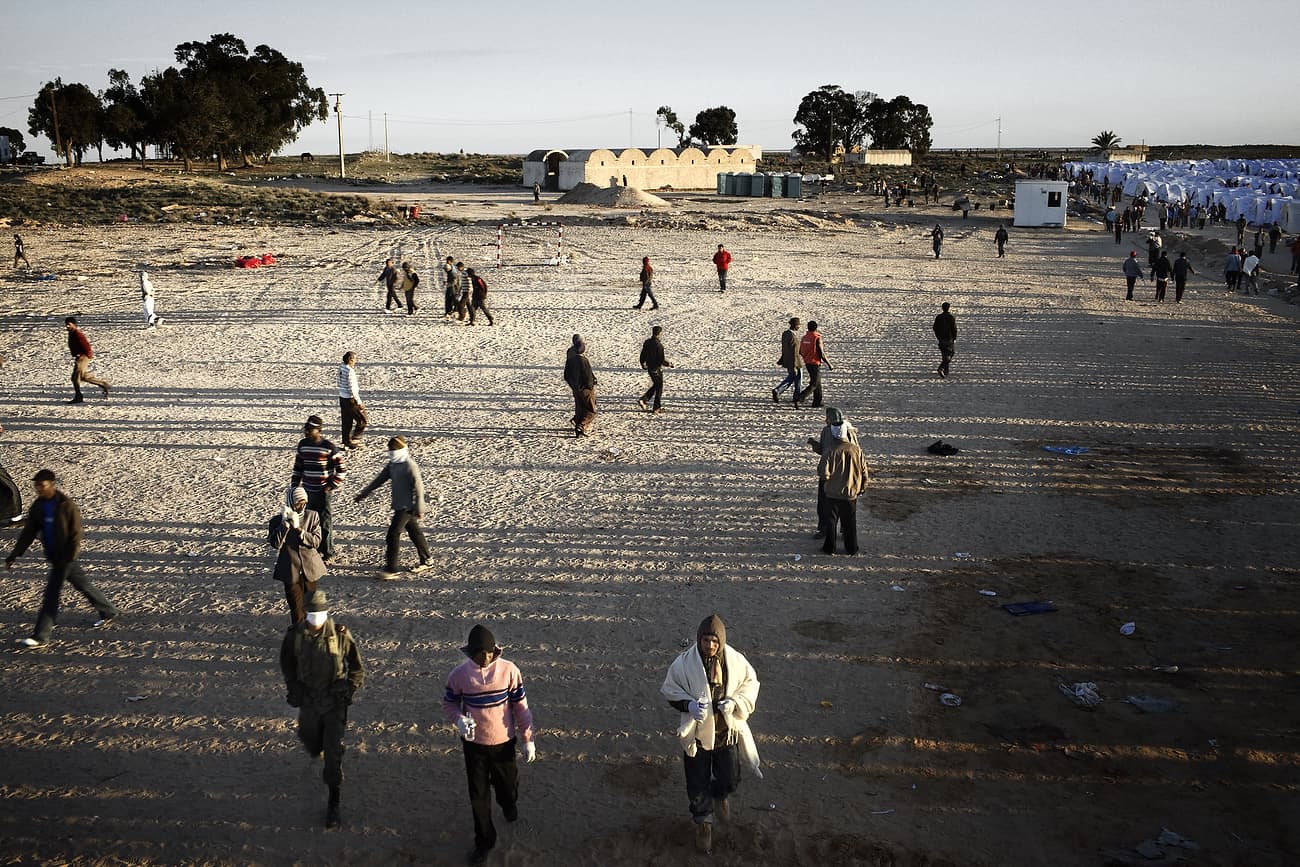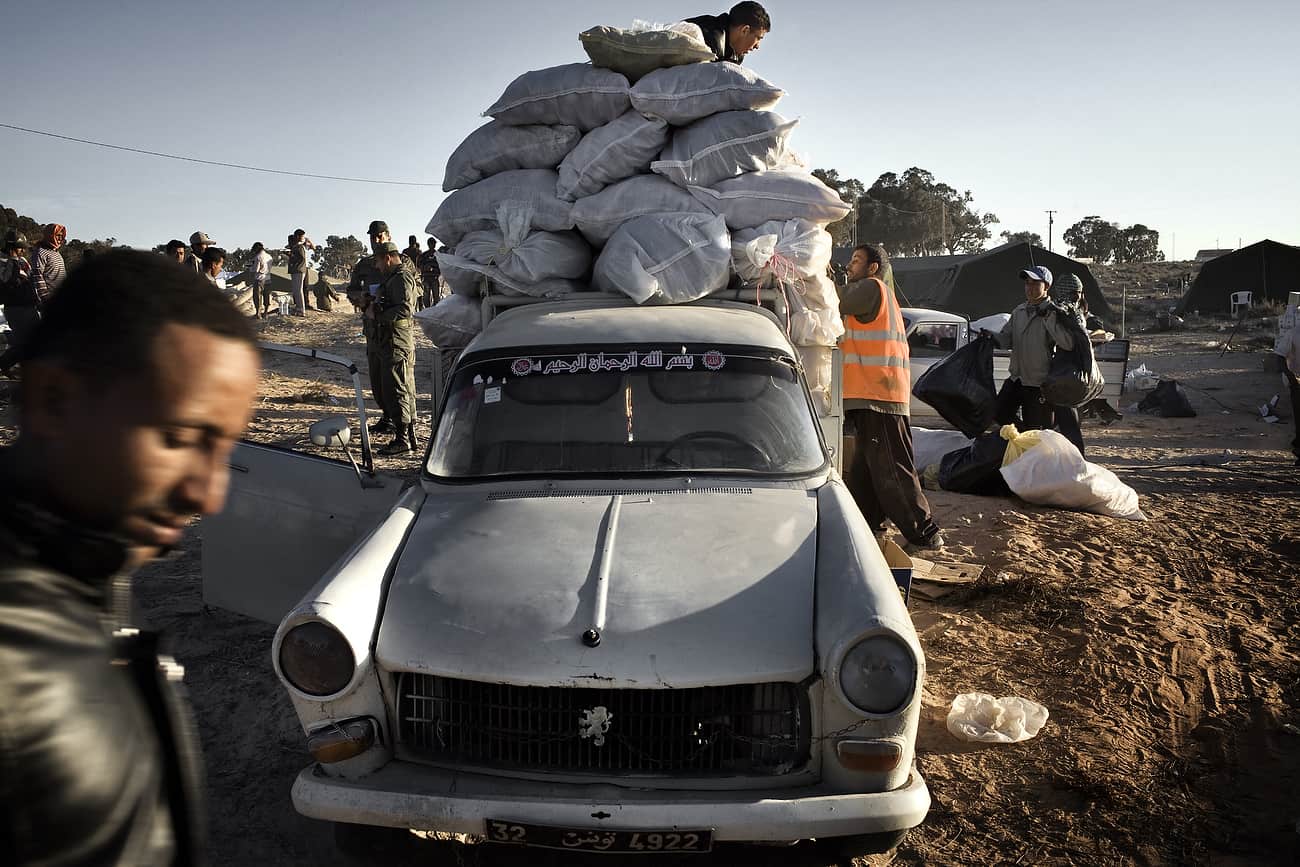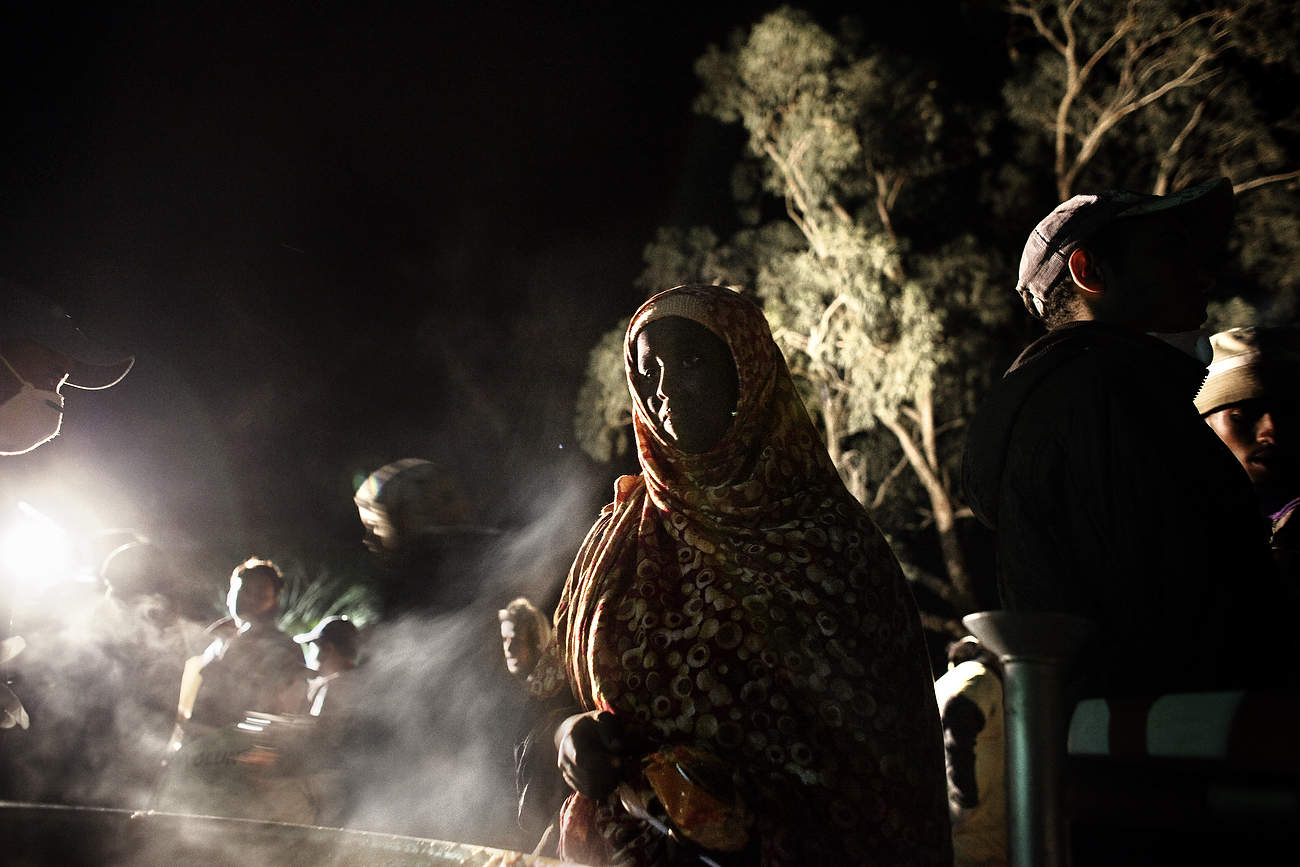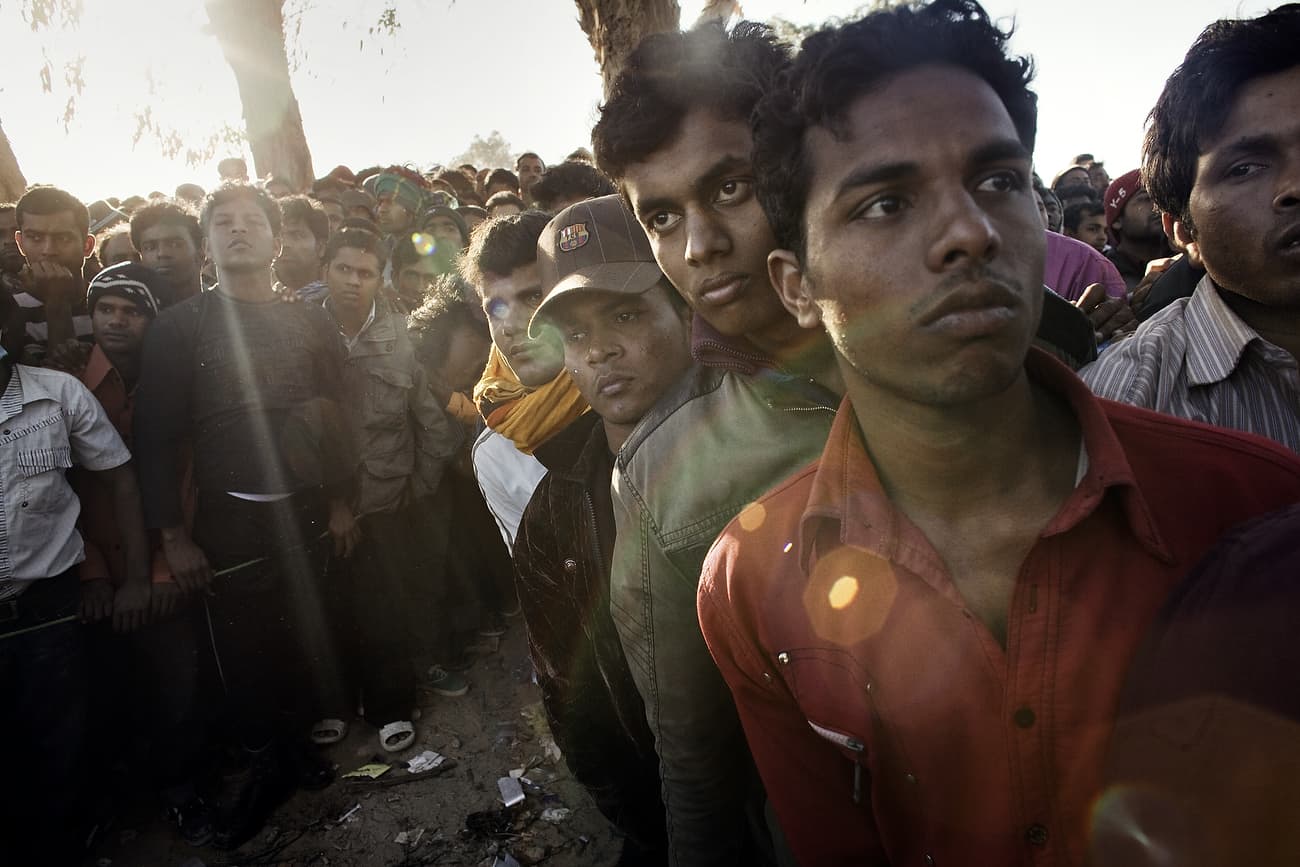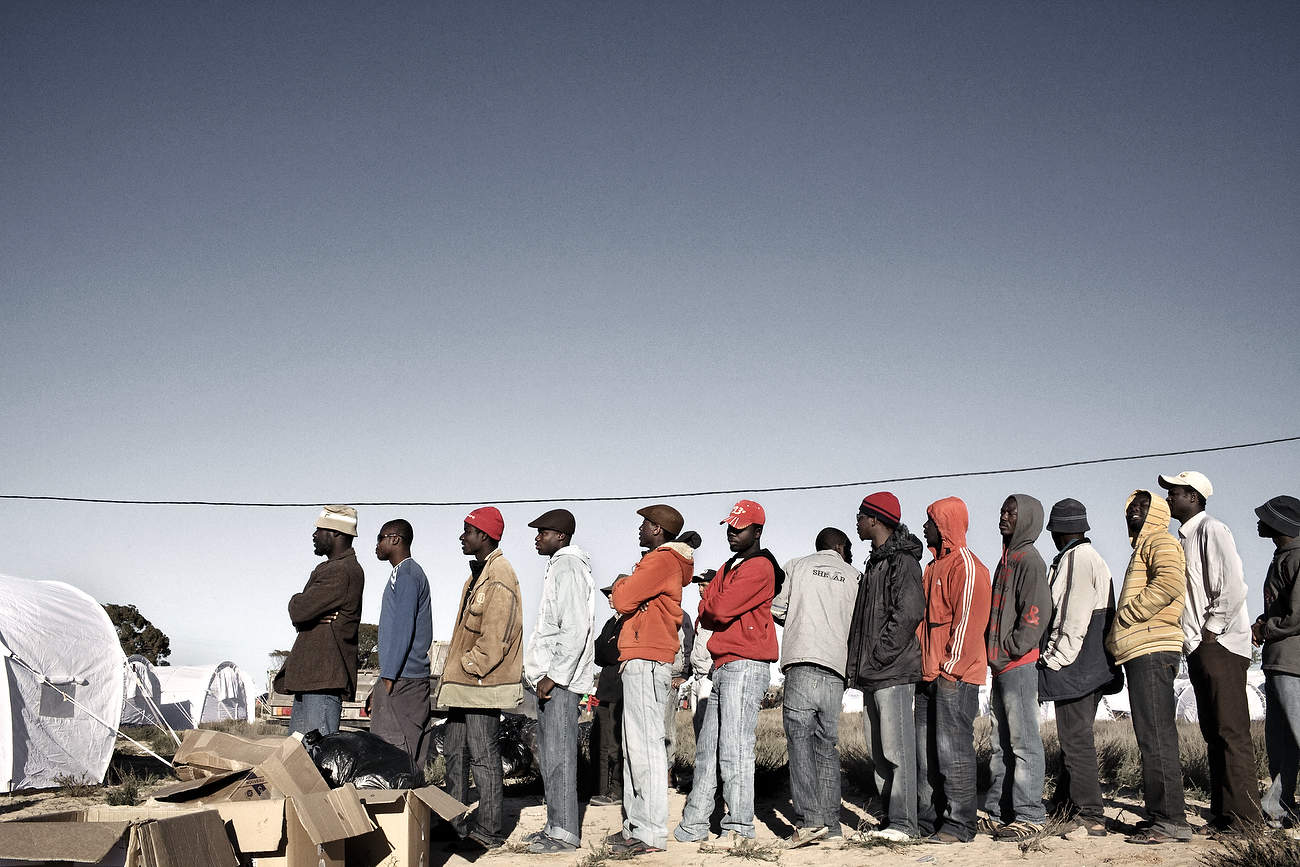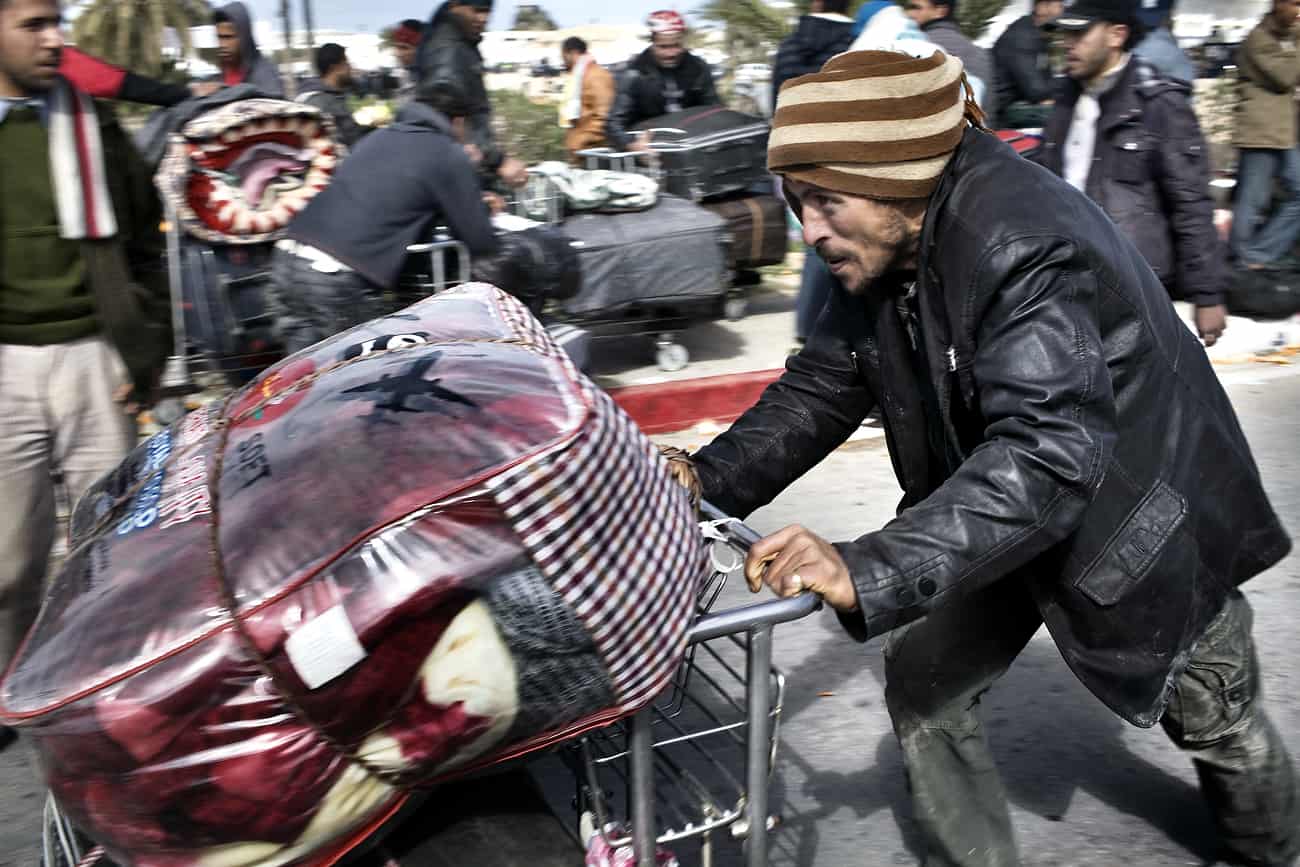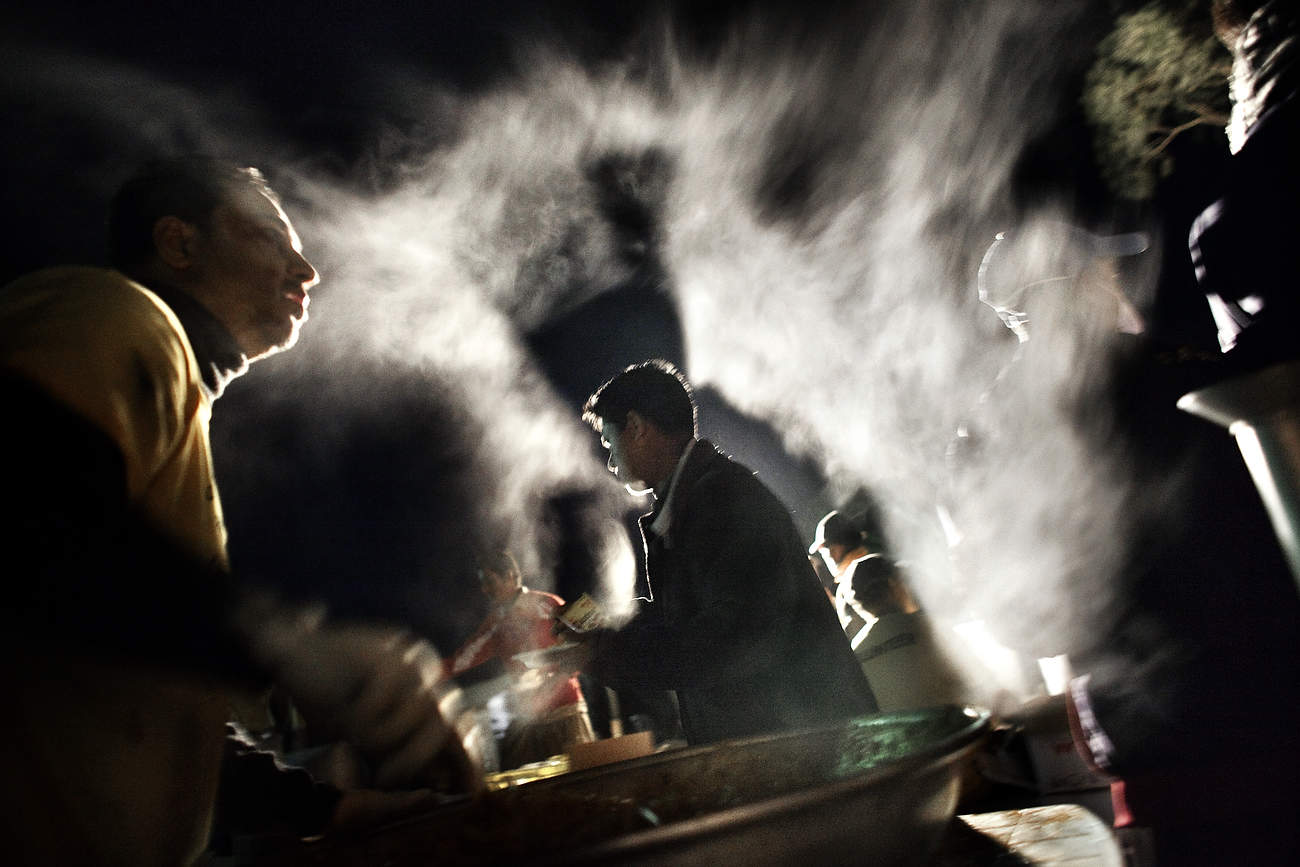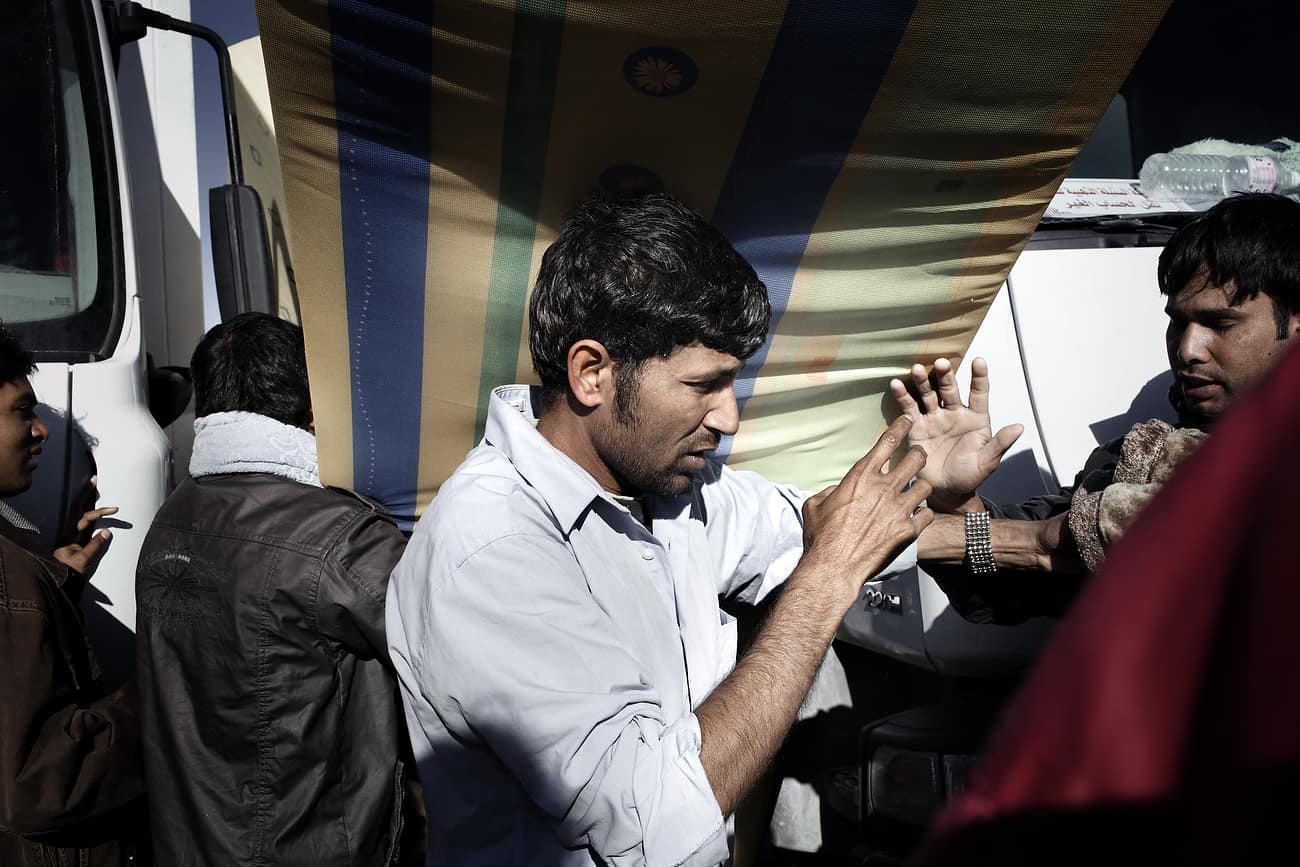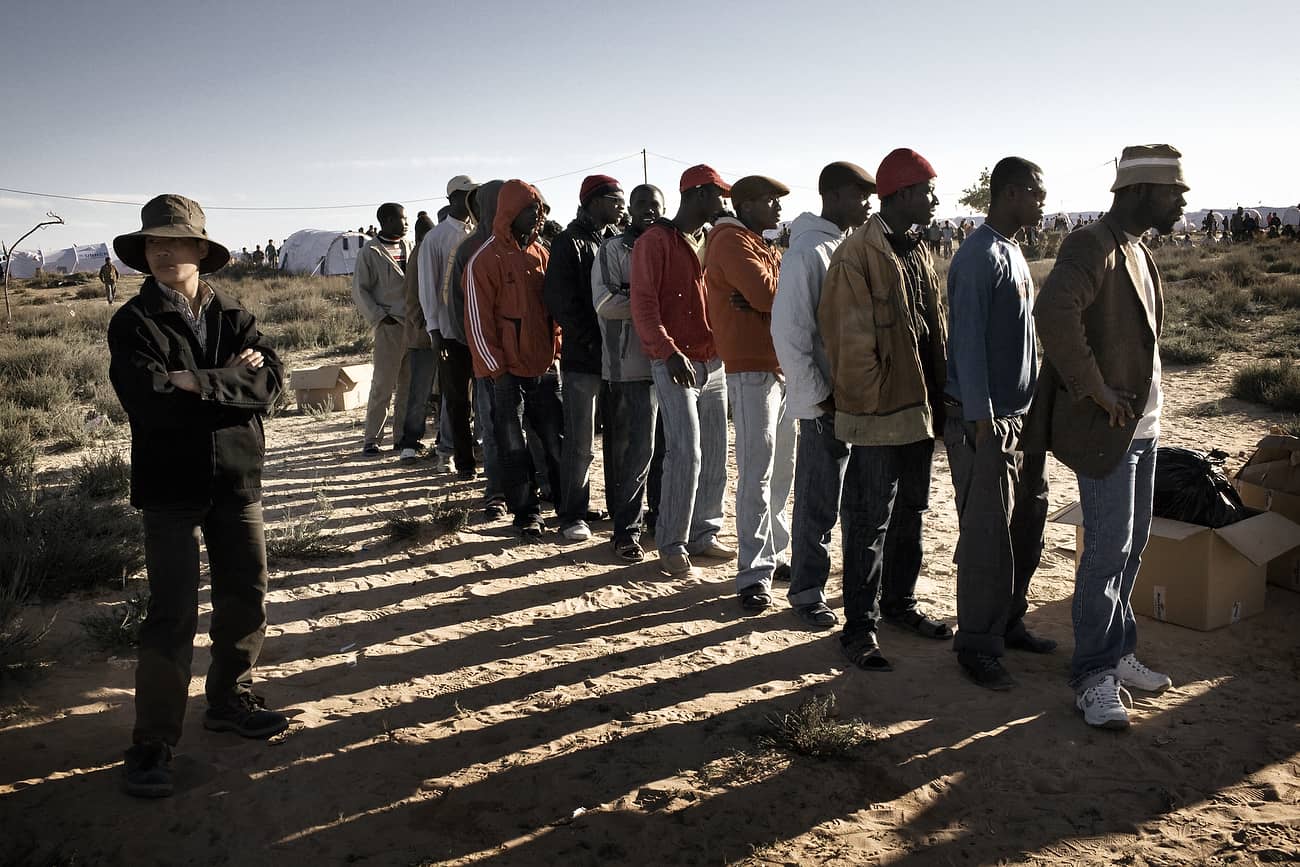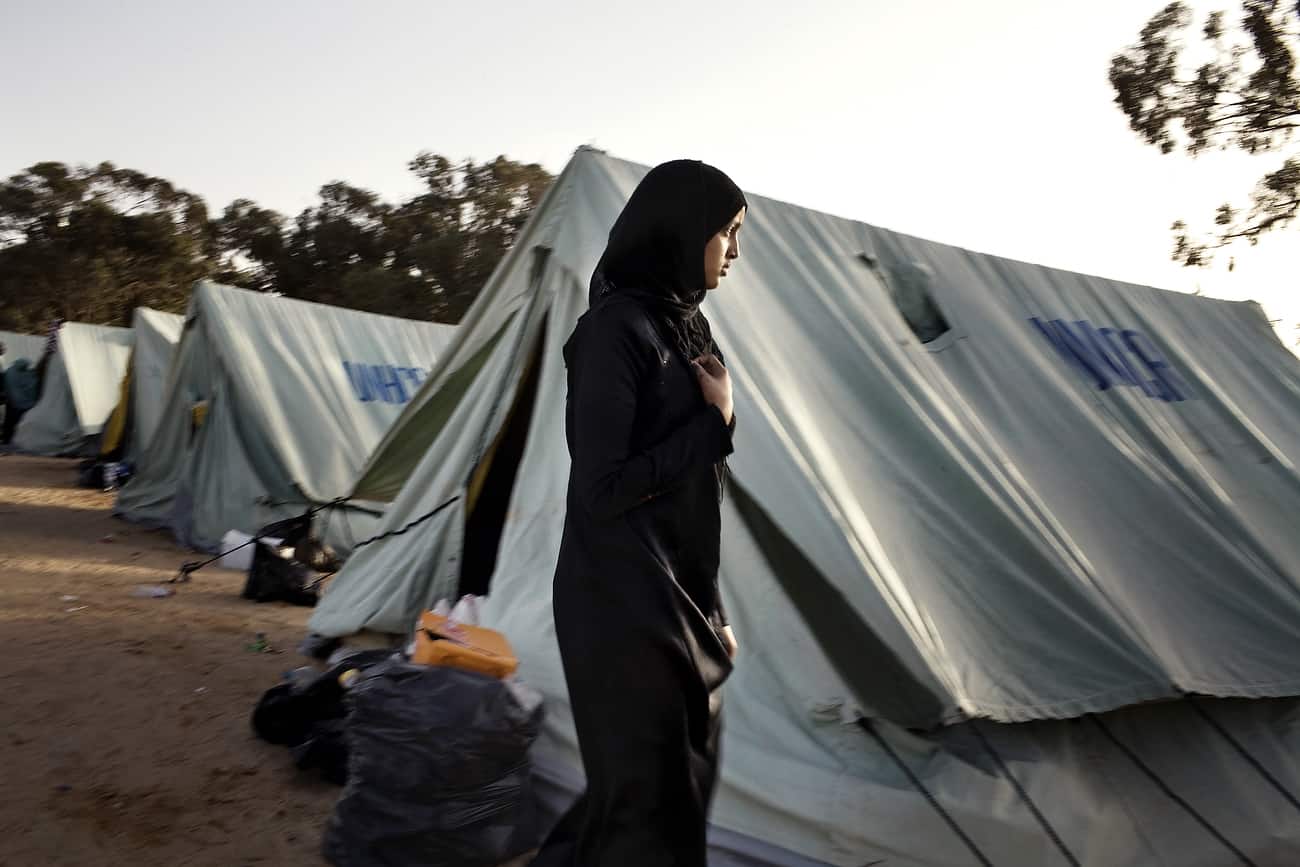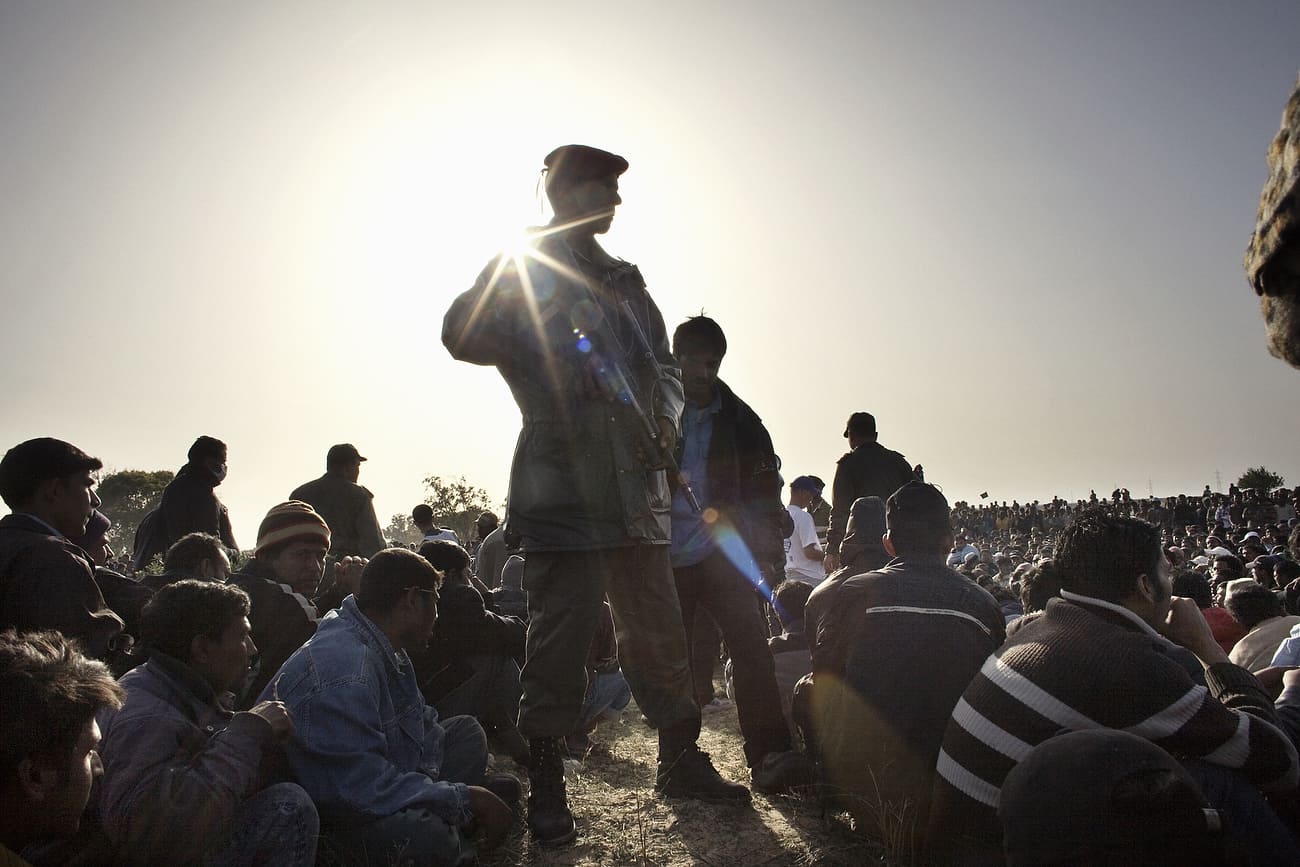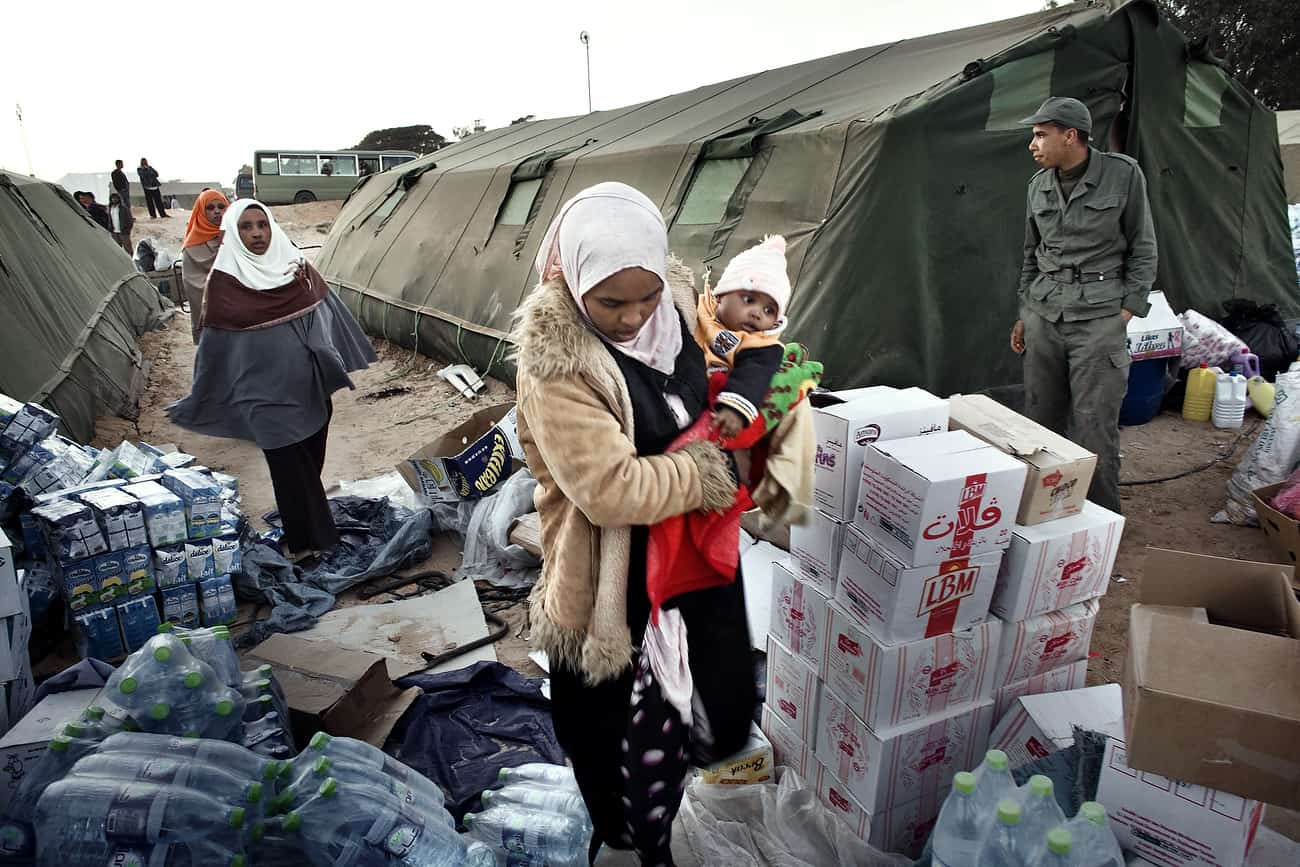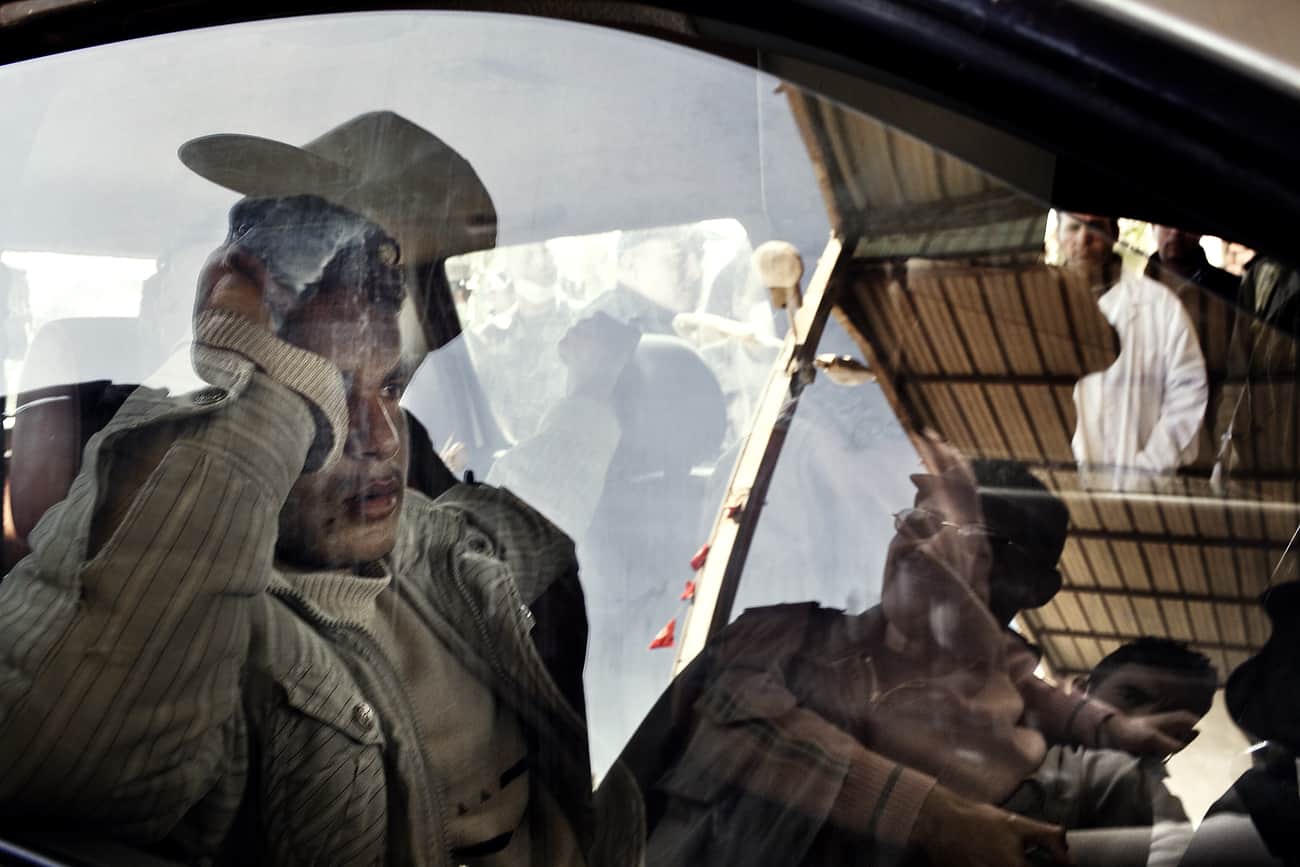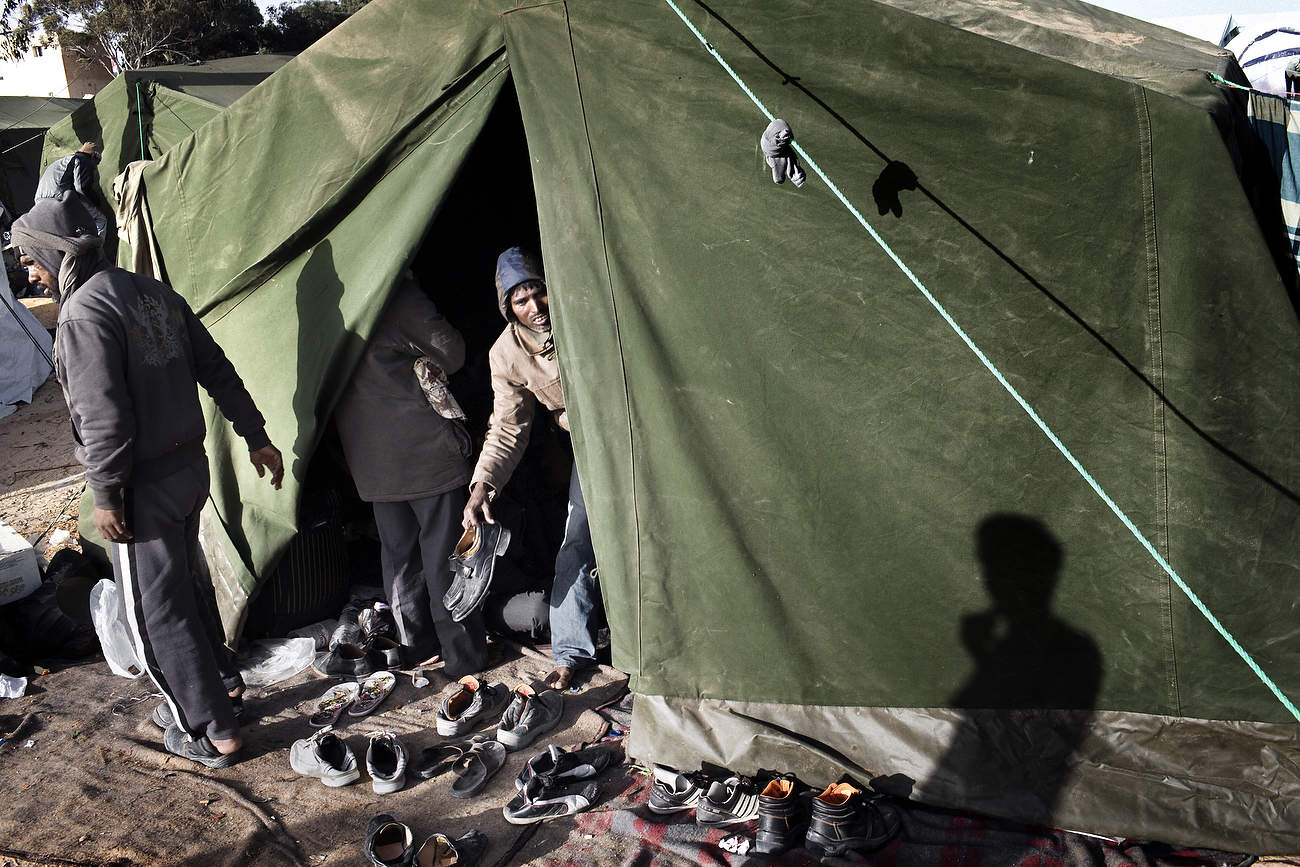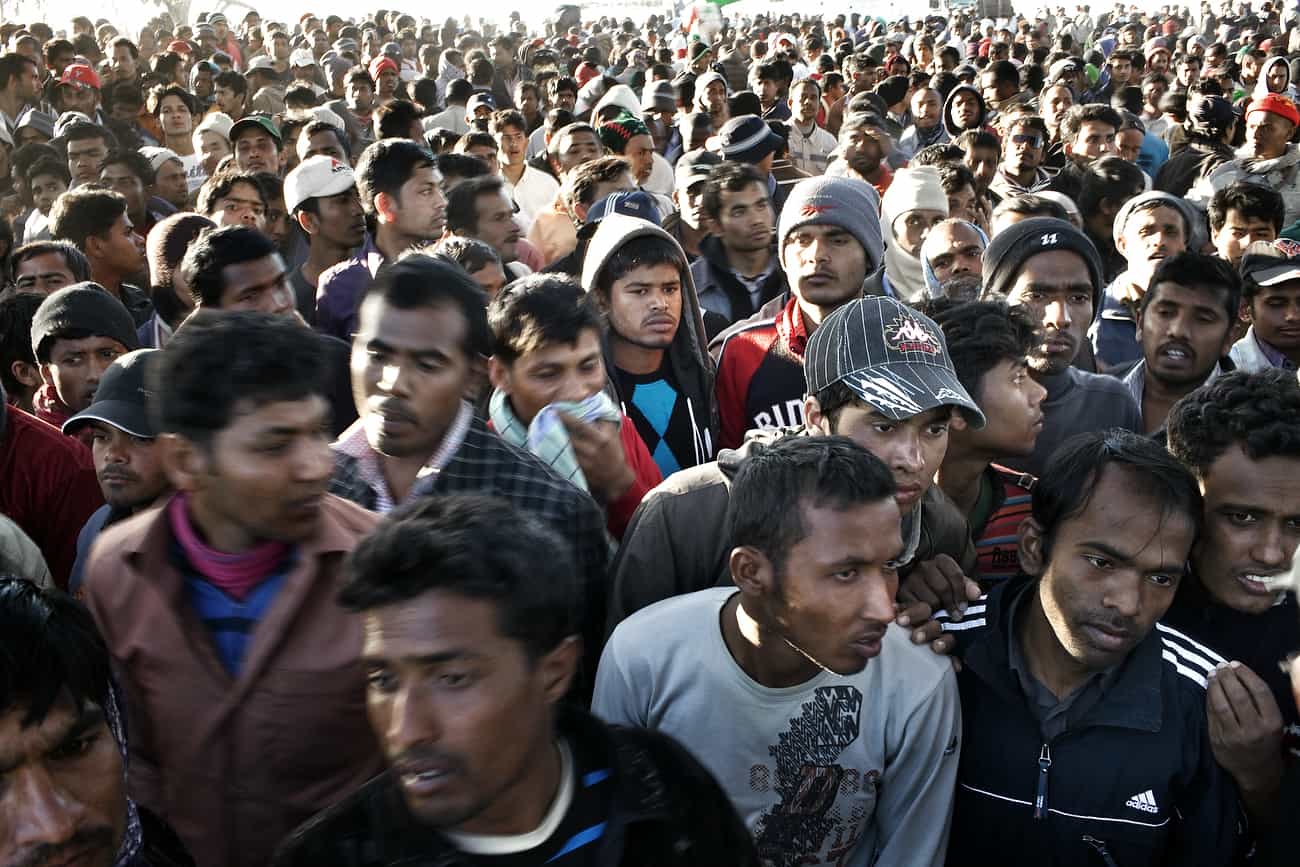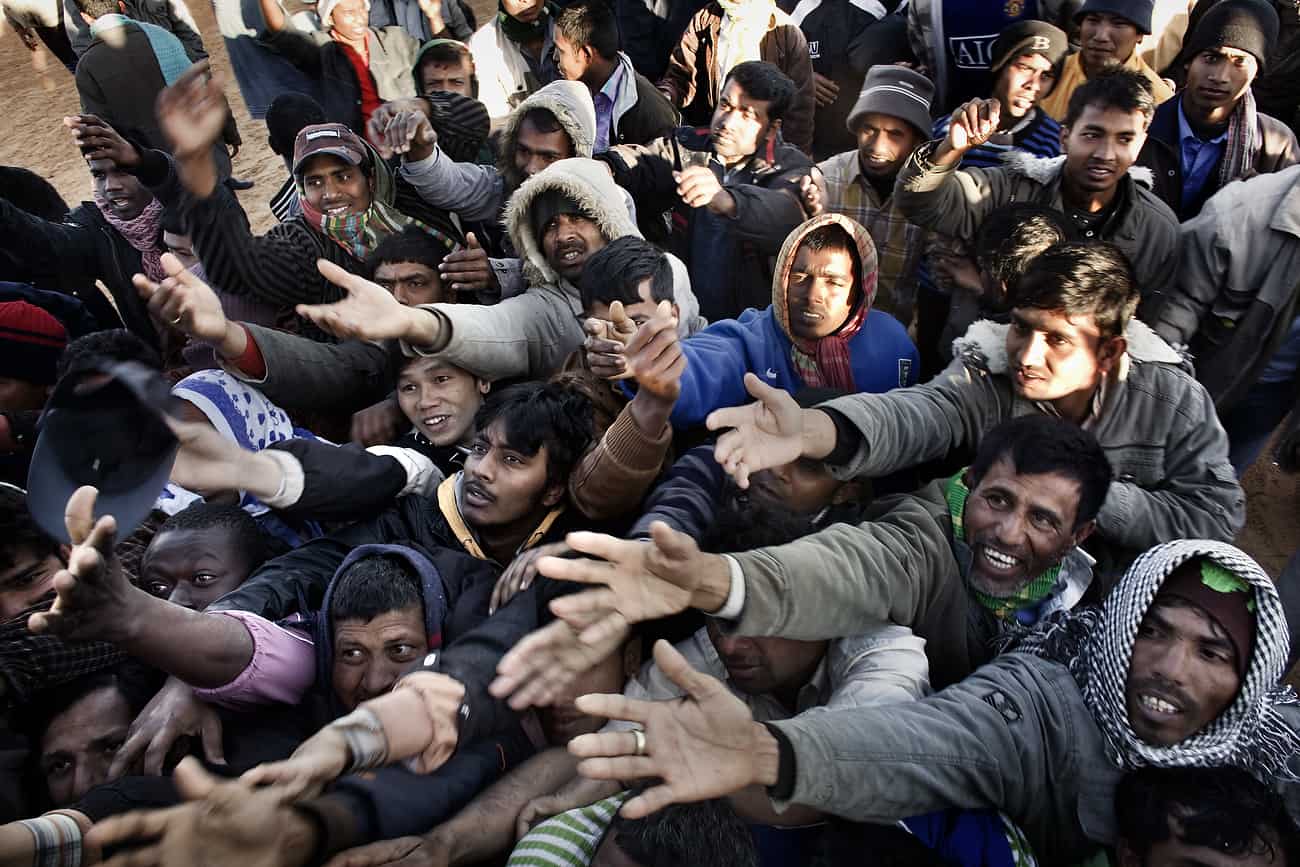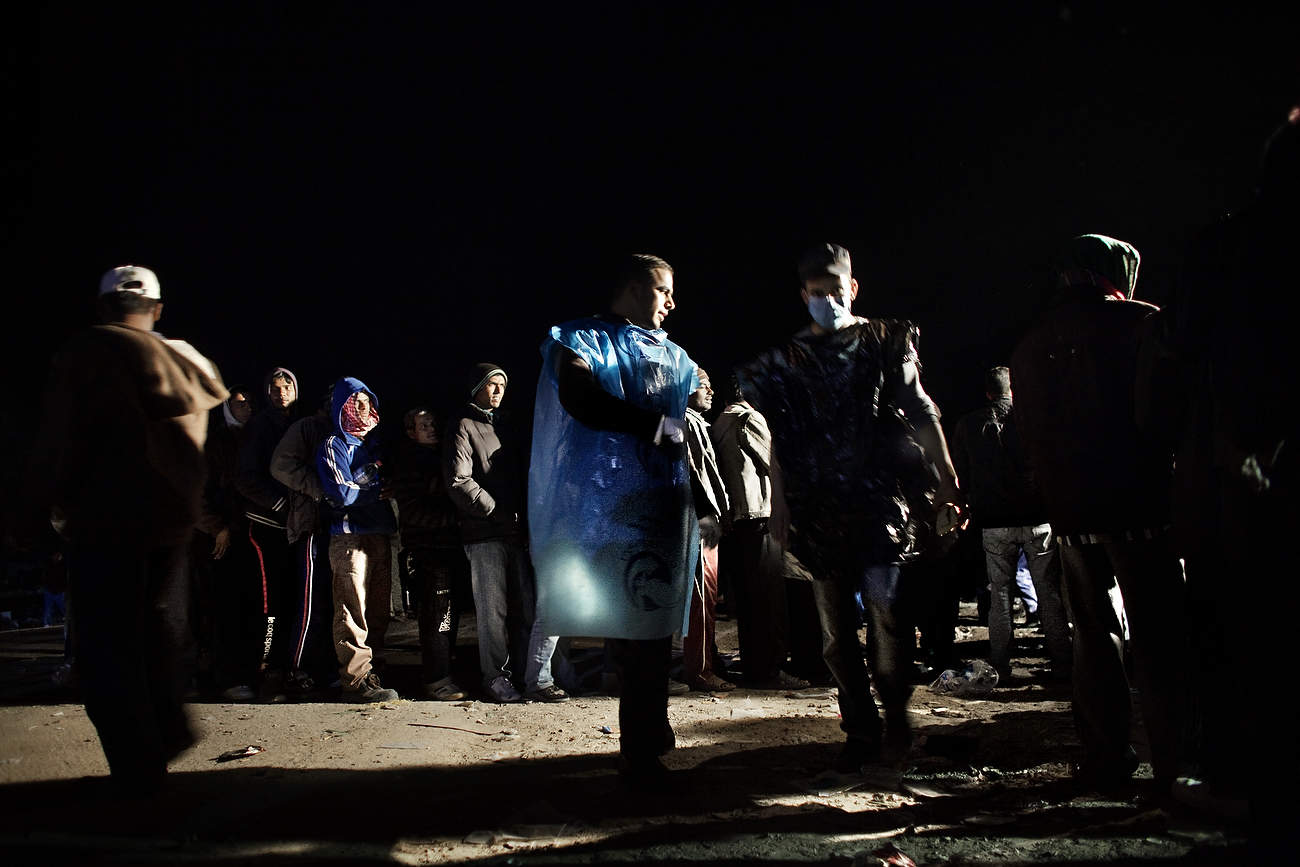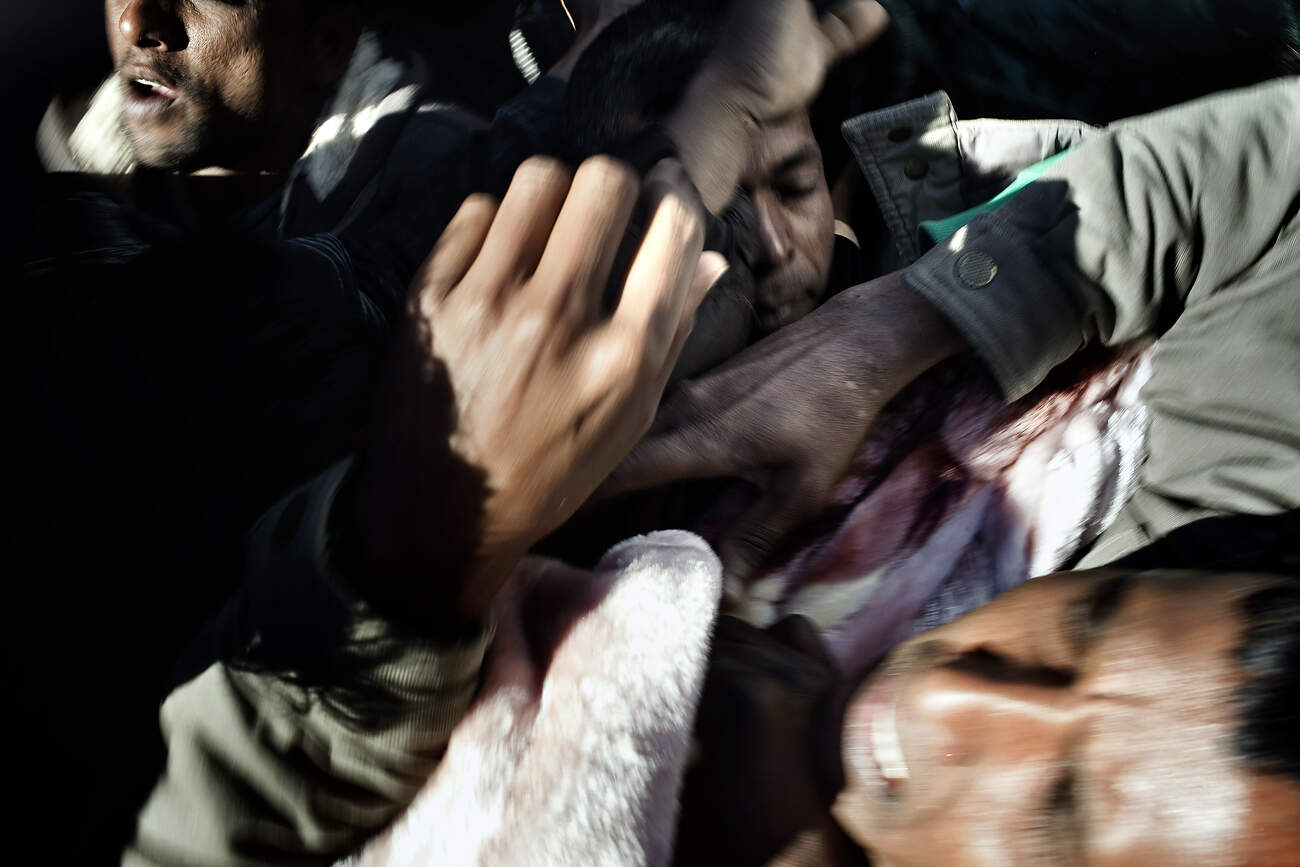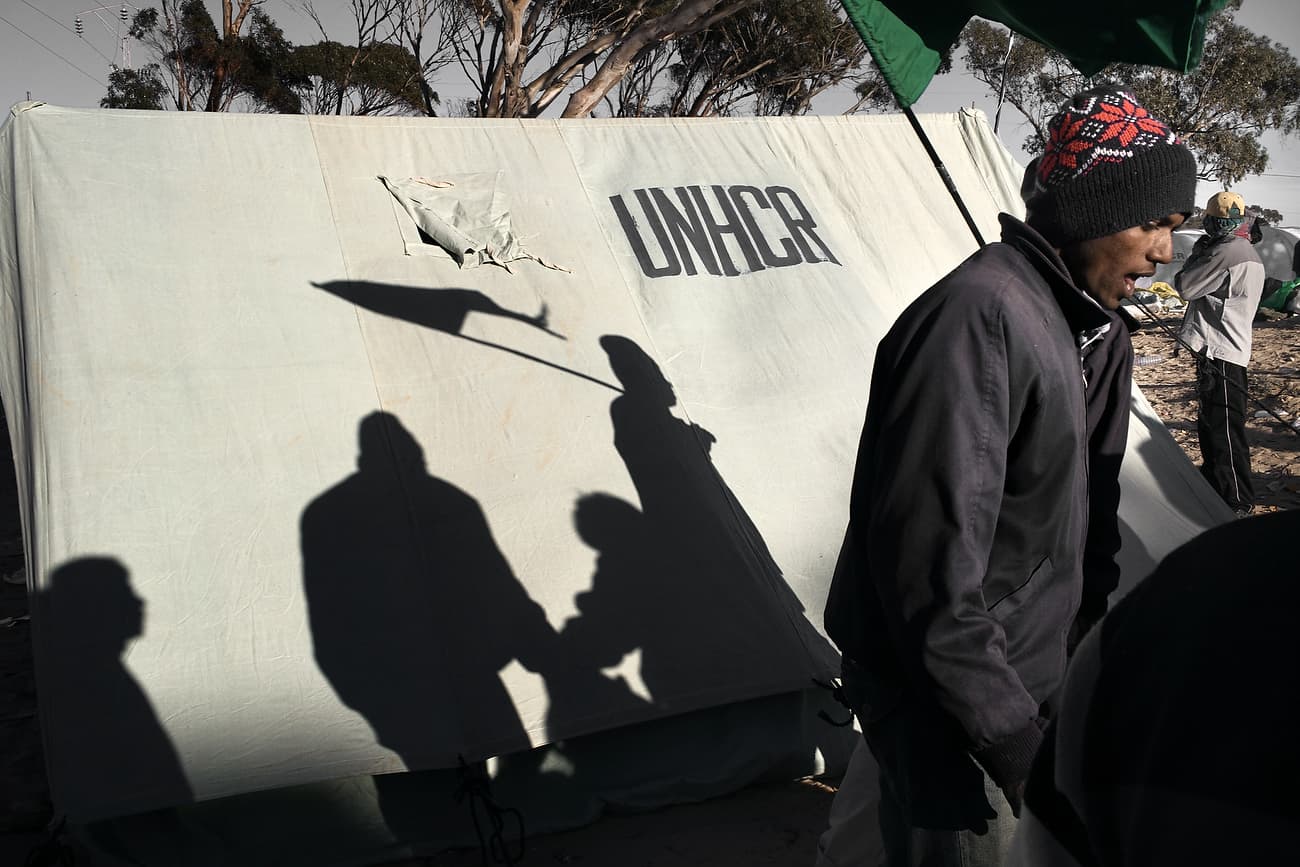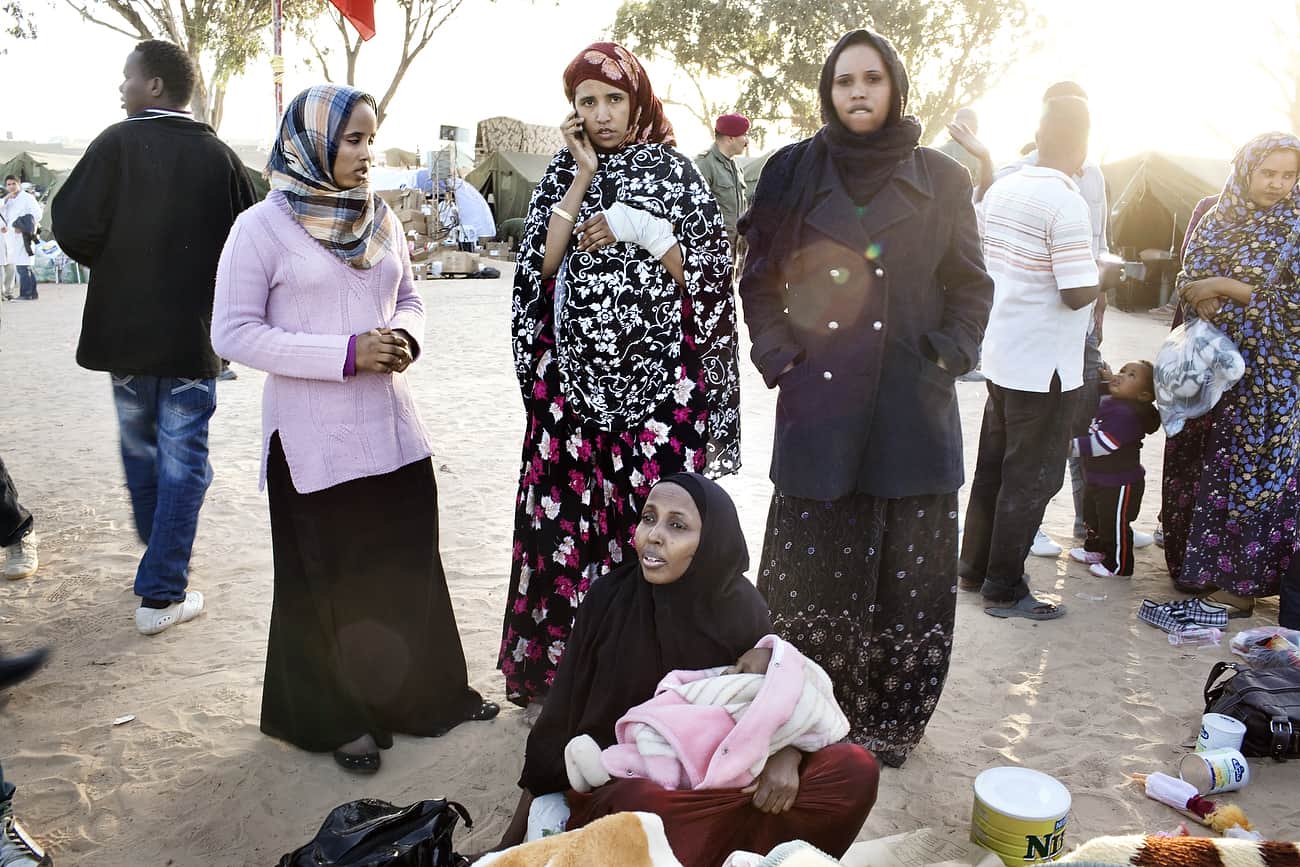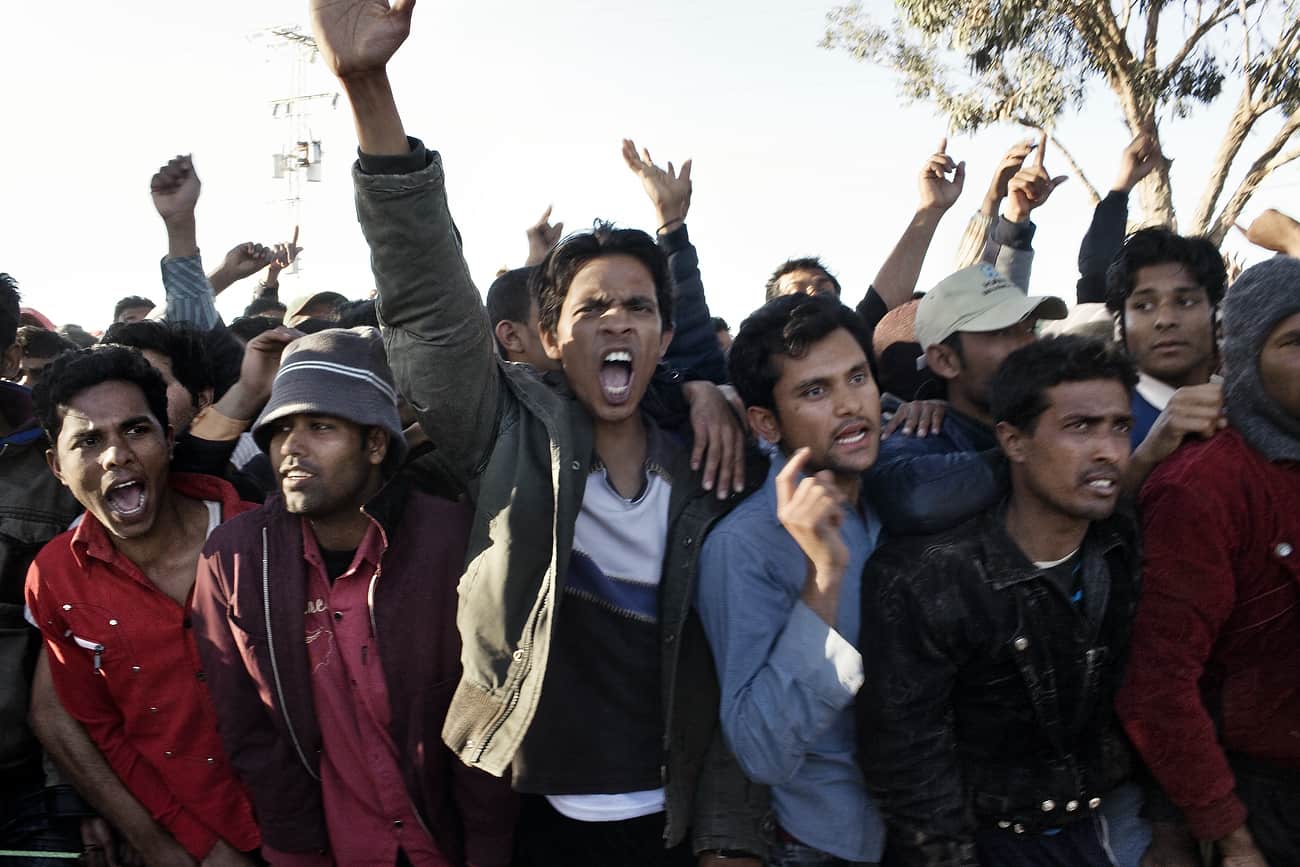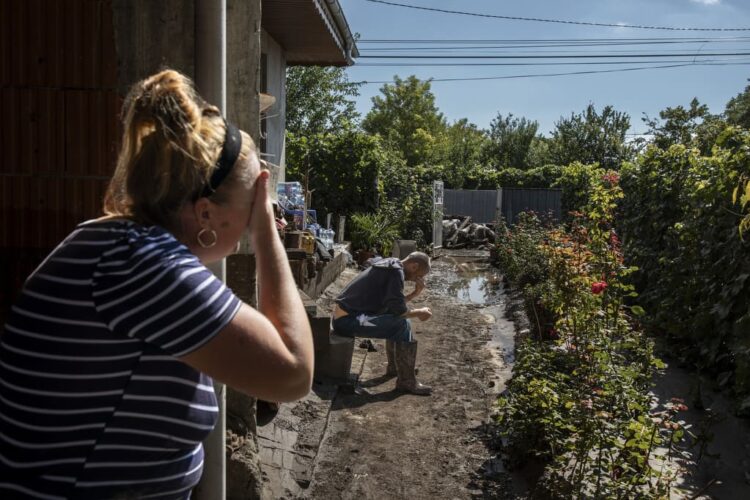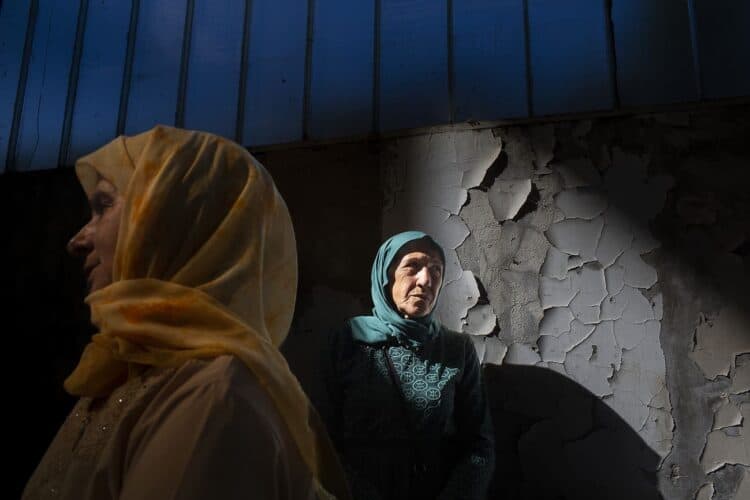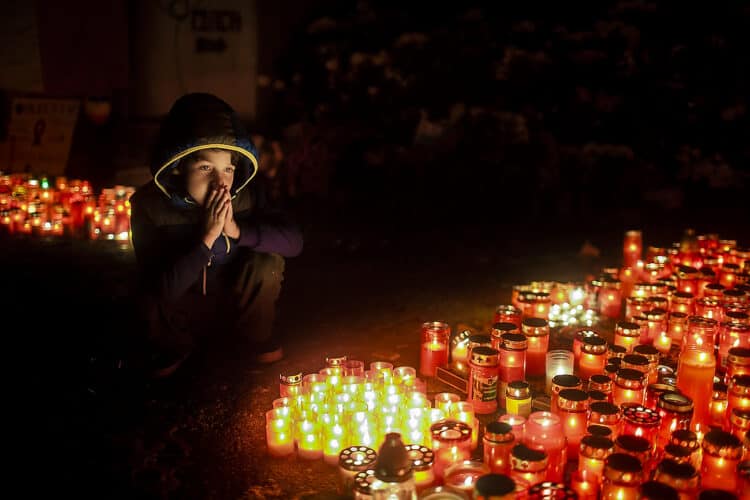Following internal fighting between troops loyal to the Libyan president and rebel forces, hundreds of thousands of foreign workers caught up in the middle were forced to pack their bags and flee for their lives from the conflict engulfing a large part of the country. The lucky ones among them managed to cross the border into Tunisia, more often than not after a long trek on foot.
By 4 March I was already in Tunisia, and at dawn the following day I landed in Djerba. I realised how dramatic the situation was as soon as I left the airport, which is more than 200 kilometres from Ra’s Ajdir, on the frontier.
Thousands of Egyptian workers had formed endless queues around the airport. At first I thought they were waiting for an aeroplane to take them home, but later I found out that the airport had become a sorting centre. How did things work? Depending on the date they had entered Tunisia, the workers were waiting to be taken by bus to the region’s largest port, in the town of Jarjis. There, the Egyptian government had readied ships for the long-awaited repatriation journey. It was there that I first made contact with the refugees.
I was deeply moved by the desperation with which the people ran to the buses as soon as their turn came. Their passports were kept by those organising the evacuation. Gathering around the vehicles, the people waited fearfully and impatiently until they heard their names called out. A short gleam of triumph flickered across their faces when their names were called out. Then, they determinedly picked up their enormous baggage, which they had carried on their backs for hundreds of kilometres, stuffing it as best they could into the crammed buses. That baggage contained everything they had saved up to buy for months or even years. In ninety-nine per cent of cases, the value of those goods was no more than a hundred dollars, even if they weighed tens of kilos. But for those poor people, it was their sole wealth.
I then spent two days at the refugee camp near Ben Gardane, where I arrived at around four o’clock local time. As I approached I could see thousands of tents glinting in the sun. The tents had been erected by UNHCR and other humanitarian organisations. There were around seventeen thousand refugees from Bangladesh, Somalia, Sudan, Egypt, Nigeria and other countries in the camp at the time.
The conditions on the ground were indescribable. There were no toilets, except for a few made available to the women and mothers with children. Thousands of refugees had to go to the toilet in the open. Everywhere you looked there were interminable queues. People waited for hours on end to receive a bottle of water and a plate of food, without any guarantee that they would get anything else to eat or drink after that. More often than not, when the pasta with traces of tomato sauce ran out the queue was just as long as it was when the food started to be distributed. In all honesty I can say that the whole place was crisscrossed by permanent queues: there were endless queues of people at morning, noon and night. The lucky ones managed to get something to eat, while the others had to content themselves with only a little water.
